In all probability, the educationist of the year 2000 AD will look back upon us and wonder why we, the school people of 1938, failed to include the camp as an integral unit of our educational system.
– The Kappan Magazine, the official magazine of Phi Delta Kappa – 1938
If you ever have the opportunity to visit us at camp, you’ll have the opportunity to sing the GAC Song. While many people love the “wadda-ing” that takes place in the chorus, my favorite part comes in the final verse. We sing, “I sure did learn much more here than I ever did at school.”
My love of this line comes from my teaching before I came to work for Gold Arrow full time; I was a high school social science teacher for 14 years.
It may seem odd that a teacher would love a line about learning more at camp than we did at school. But I do because camp and school operate symbiotically. While those of us in camping and education have known this anecdotally for many years, there is an increasing body of evidence that supports that belief with data.
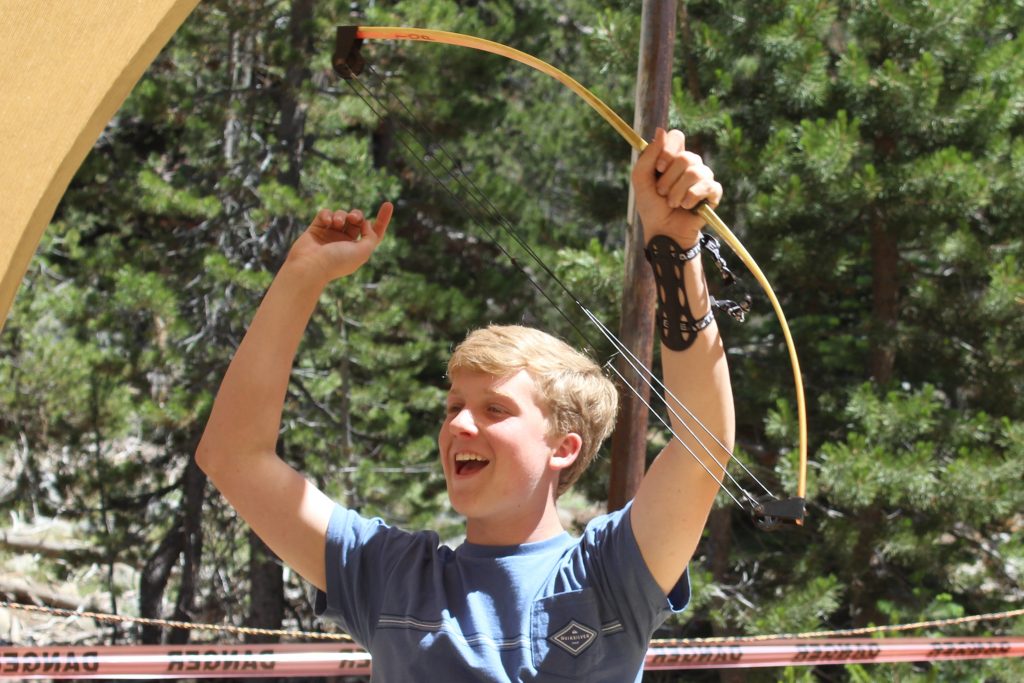 Some of that research has been supported by the American Camp Association, and I was privileged to hear one of the leaders in the field, Lance W. Ozier Ed.D. speak on this at a recent conference. He has written on the history of camps and schools (you can read it here). In that article, Dr. Ozier lays out the reasons that camp blossomed in America after the Civil War. As people moved to the cities, adults began to worry that their children were losing touch with nature, and so they sent them to live in nature. How familiar does that refrain sound to us today?
Some of that research has been supported by the American Camp Association, and I was privileged to hear one of the leaders in the field, Lance W. Ozier Ed.D. speak on this at a recent conference. He has written on the history of camps and schools (you can read it here). In that article, Dr. Ozier lays out the reasons that camp blossomed in America after the Civil War. As people moved to the cities, adults began to worry that their children were losing touch with nature, and so they sent them to live in nature. How familiar does that refrain sound to us today?
And yet the challenges for young people are even greater now than they were then. The rise of computers, social media, and cell phones has had as great a social impact as urbanization a hundred years ago. Today, camp serves not just as a way to re-engage children with nature, but as a way to help them learn vital social skills in a systematic way. We are fortunate that one of our camp owners and directors, Audrey “Sunshine” Monke, has studied the impact of camp on building social skills. Her research shows that a significant majority of campers report having improved social skills because of camp. She believes that this is because camp counselors are specifically trained in helping campers to improve skills like making friends and listening to others.
It isn’t just Sunshine that has found these results. According to research conducted by the American Camp Association, campers and their parents report that campers have more social skills, higher self-esteem, and more independence. When a child returns to school more comfortable socially, they have more confidence and are more likely to sit up front, ask questions, and ignore distractions. When they do that, they are setting themselves up for more academic success.
But wait, there’s more! Camp also provides an opportunity for children to struggle in a safe and supporting environment. At camp, we talk a lot about growing grit, a concept that has been moved into the public discussion about education by Angela Duckworth’s research. We think that grit is so important we made it our theme for an entire summer! But there is increasing research that shows how struggling actually changes the way the brain grows. This research in neuroplasticity shows that the brain grows much more when it is engaged in something difficult. So every time a camper tries to waterski another time, or climbs the rock wall, their brains are growing!
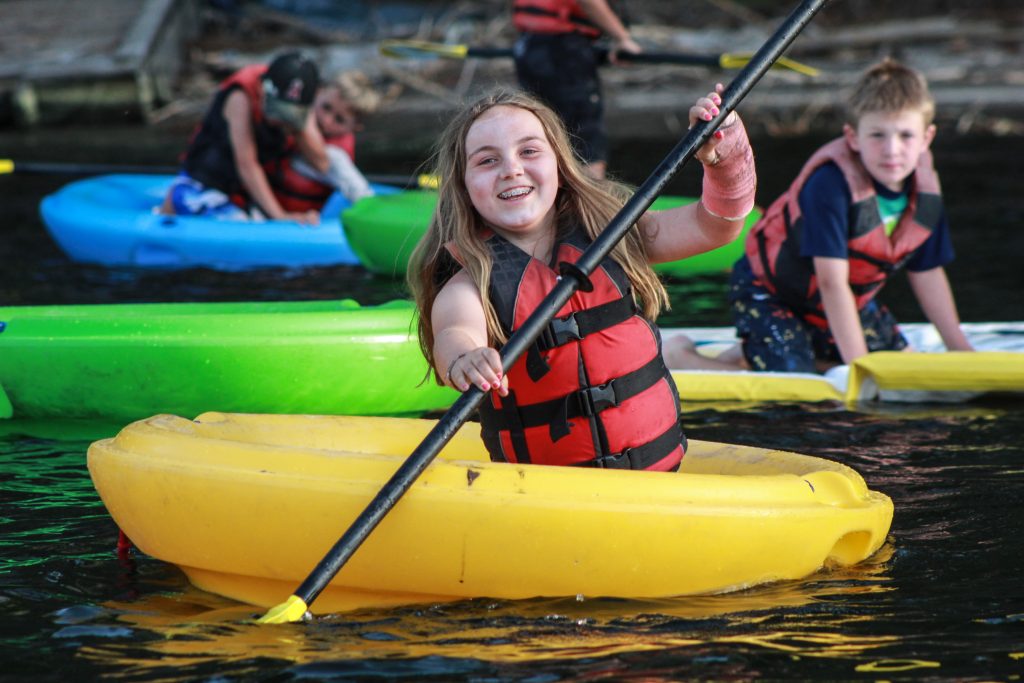 (Interestingly, that same research shows that the brain also grows more and stronger synapses, in mice at least, when they are allowed to roam openly in nature.)
(Interestingly, that same research shows that the brain also grows more and stronger synapses, in mice at least, when they are allowed to roam openly in nature.)
None of this is news to people who send their kids to camp, or those of us who work at camp. We can see anecdotally that kids are more confident and more “alive” after camp. But this research simply confirms what so many educational researchers knew in the early 1900s: going to camp when you’re not in school will help your education.
“Friends are everything. They are always there if you have a problem or if you get hurt, they can always help you up.”
– Patricio, Camper, Age 8
The commonly accepted trajectory of do well in school -> get into a good college -> make a lot of money -> flourish in life is not exactly accurate. You only have to know one unhappy wealthy person to know that’s not the path that will lead to happiness or fulfillment.
What is a more accurate trajectory? good interpersonal (social) skills -> positive relationships -> flourish in life.
Michael Thompson’s statement, “Friendship is the gold of childhood,” stuck with me long after I attended his conference session on the social lives of children. Friendship is not just the gold of childhood, but also of life. In my research for my Master’s degree in Psychology, I looked closely at studies related to friendship, social skills, and well-being. What I found was not surprising. For children, and adults as well, positive relationships are the best predictor of overall happiness and well-being. As parents, teachers, and counselors, we should be putting a primary emphasis on helping kids develop the social skills they need to make and keep friends.
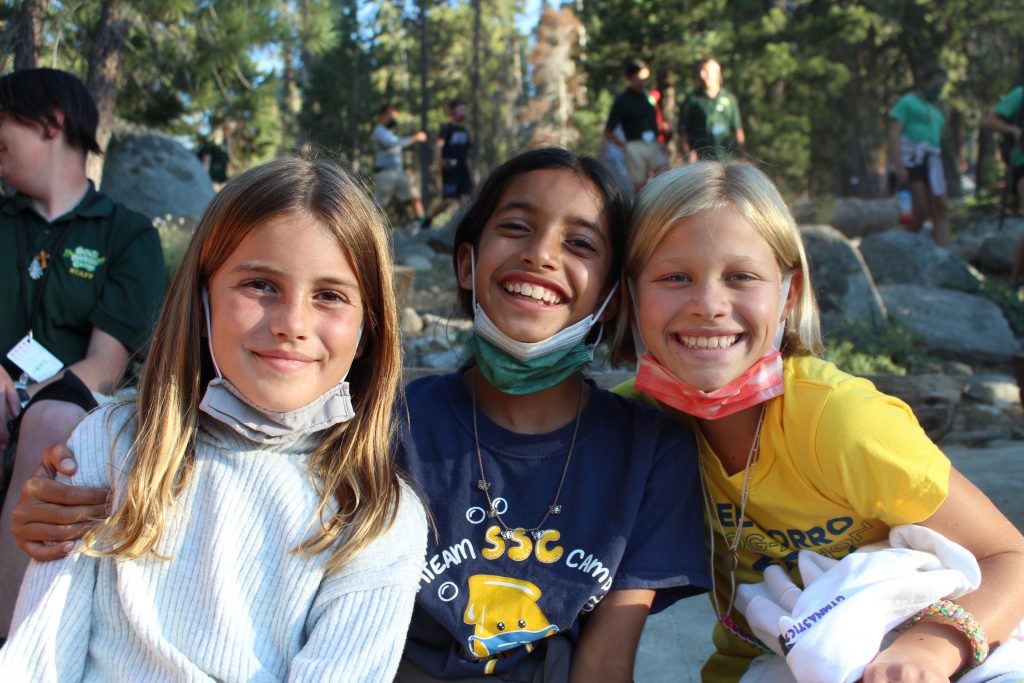
Unfortunately, our culture is not supporting the development of healthy, solid friendships between kids. Friendship is more important than any academic subject or athletic skill, and yet the way our kids spend their time does not reflect this importance. For many kids, there simply isn’t time in their lives for developing strong, close friendships.
What are our kids learning about friendship in this Instagram, Snapchat, and texting era of “friends?” Many boast hundreds, even thousands, of “friends” and “likes” on photos. Yet some of those same kids don’t have one single person in their lives that meets the criteria of a true and trusted friend. Face-to-face social skills, such as being able to read non-verbal cues, are learned through practice. If communication is primarily through media, then those skills are not being honed.
Another cultural factor that is counter-productive to the development of solid friendships is the constant, high-stakes competition our children are constantly in with their peers. Who’s ranked higher at school? Who made the “A” team? Who’s more popular? Often, instead of being truly supportive and encouraging of each other, kids want their peers to fail.
Making friends, and being a good friend, doesn’t come naturally to all people. And, coupled with the crazy culture we’re in, it’s no surprise that many kids are struggling to form strong friendships.
Friends are the reason campers and counselors return to Gold Arrow Camp year after year. “Make Friends” is one of the three main goals we chant at the opening of camp each session. At camp, there is time for friendship — precious, relaxing time to get to know each other, spend time making memories, and communicating face-to-face. Our whole camp community is built around inclusion, respect, and kindness. There is no competition at camp, no “A” team or “popular” group. Just kids having fun together and learning to live and play with each other, work out disagreements, and become better friends to each other.
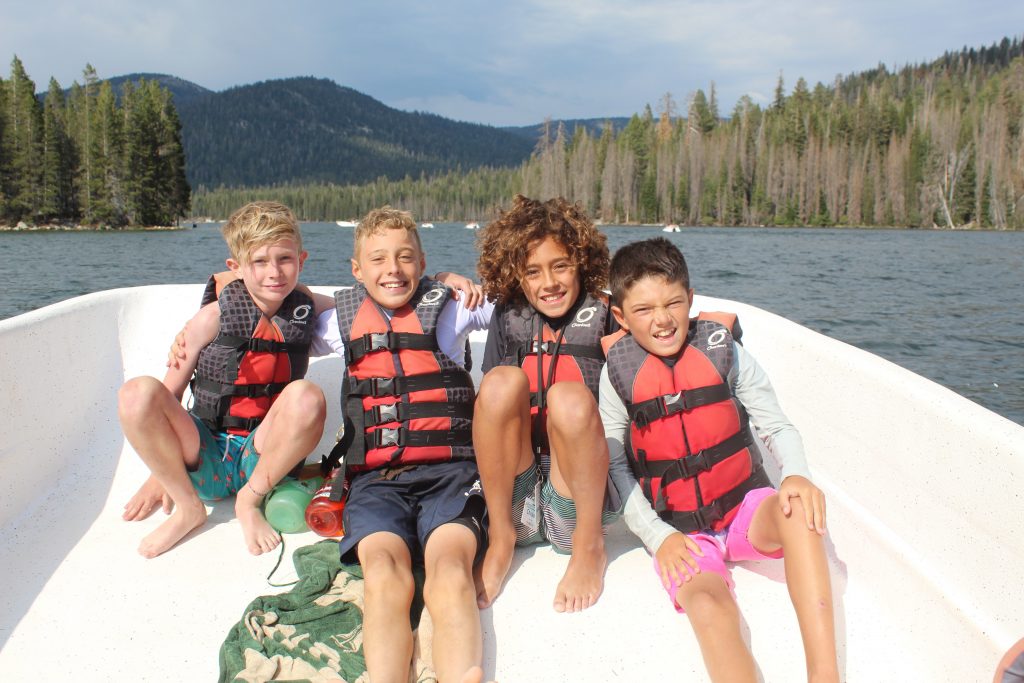
A few of the many friendship skills we focus on at GAC include:
Teaching Campers the Friendship Skill of Asking Questions
Friendship Tip: Find Your Best Calm Down Strategy
“A friend is someone you’re not afraid to be yourself with.”
– Hannah, Camper, Age 14
Counselors are trained to help kids connect from the moment they get on the bus until the last goodbye. Long talks at meals, around the campfire, and under the stars in sleeping bags are uninterrupted by cell phones and other technological distractions. Campers can’t “tune out” by putting earphones in. They stay engaged with each other and learn to connect. Counselors gently coach campers who need to develop social skills in areas such as listening skills, empathy, sharing, flexibility, initiating conversations, and understanding non-verbal cues. They encourage campers to be intentional about being good friends to each other and observant about what they appreciate about their friends.
On the final day of camp, our campers receive their session yearbooks, which include a space for them to share contact information with each other. We hope that campers use this tool to stay in contact throughout the year.
“Friends are awesome, because they stand up for you, and they care for you.”
– Joey, Camper, Age 11
At one final campfire gathering last summer, the Randy Newman song, “You’ve Got a Friend in Me,” came on during the slide show. A group of four twelve-year-old boys sitting on the bench in front of me spontaneously put their arms around each other and started swaying back and forth, singing along to the song. I will never forget that vivid picture of the power of camp friendships.
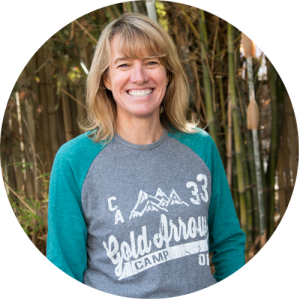
Audrey “Sunshine” Monke, MA, has been the owner of Gold Arrow Camp since 1989 and currently serves as the Chief Visionary Officer. In addition to her vision-casting and mentoring at GAC, Sunshine is an author (Happy Campers: 9 Summer Camp Secrets for Raising Kids Who Become Thriving Adults), podcast host, speaker and coach on the topics of parenting, social skills, and happiness. Find out more at her website, Sunshine Parenting.
I would not be the person I am today without camp.
-15-year-old camper
My three decades of camp experience, coupled with my own and others’ research, have shaped my long-held opinion that camp experiences benefit children in profound ways. Yet even I was astounded by the revelations shared at our closing campfires last summer for the campers who were completing their final seasons as campers. These campfires were an emotional time to say goodbye to our high school kids heading into 10th grade.
After their counselors spoke about each of them and shared words of affirmation and encouragement, I asked the kids if they wanted to share anything they had learned at camp they might use throughout their lives. I knew we had a special gig going at camp, and that we were providing a positive, healthy community where kids could have fun, make friends, and grow, but I hadn’t heard the specific life lessons that they believed they learned at camp in such direct and heartfelt words spoken out loud.
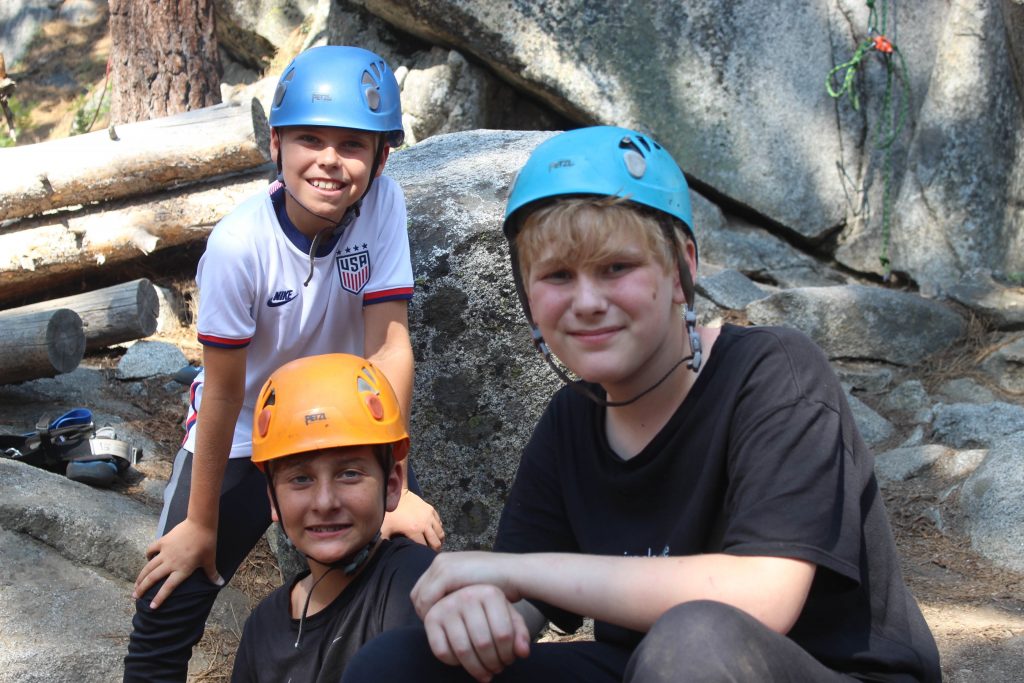
Our oldest campers shared that they learned how to be happy, “to just have fun and not worry so much.” In a time when so many young people struggle with depression and anxiety, it was heartwarming to hear that, for many of them, camp is their “happy place.”
Campers also said they learned to be happy in their own skin, gaining confidence in their abilities, speaking up for things they believe in, and worrying less about what others think of them. “I have the freedom to be myself,” said one. Added another, “When I am at camp, I am a better version of myself than anywhere else on Earth.”
Being their truest selves, they found, paved the way for them to meet new people and explore new friendships. “Camp has made me a more open and caring person,” said one. At camp, many said they experienced a sense of belonging they didn’t always feel in their schools.
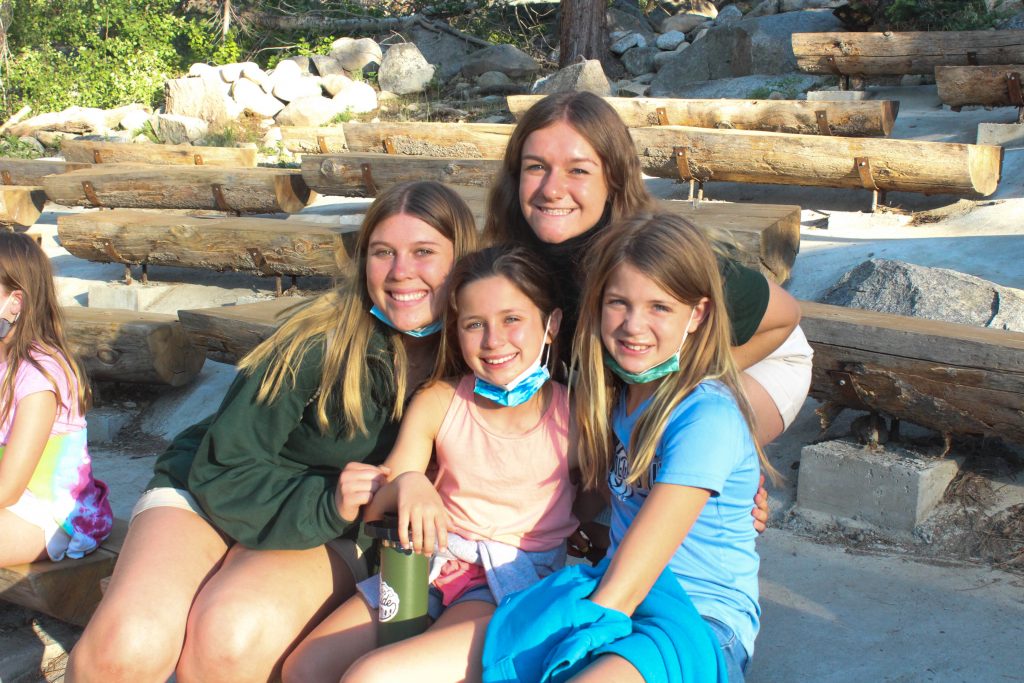
This comfort at camp enabled them to take risks and conquer fears, and they challenged themselves in new and adventurous ways. It didn’t matter if they failed, they said, because they were surrounded by counselors and friends who supported them no matter the outcome. “I’ve learned that the magic happens,” said one, “outside of your comfort zone.”
But among the sentiments that cheered me most from those older campers was the idea that camp helped them learn to live in the moment, to enjoy where they were in the Great Outdoors, and not worry about what the future held. Said one, “I found a passion for the outdoors I thought I would never have.” That’s what tends to happen, of course, when kids are unplugged from their technology for a time. Experiences and relationships are more vibrant and real, and kids expressed how great it was to connect face-to-face.
I really loved the way one camper put it: “When I was put in a cabin group with seven other random girls, we bonded really well and didn’t judge each other before we got to know them, because we had never seen each other’s social media profiles.”
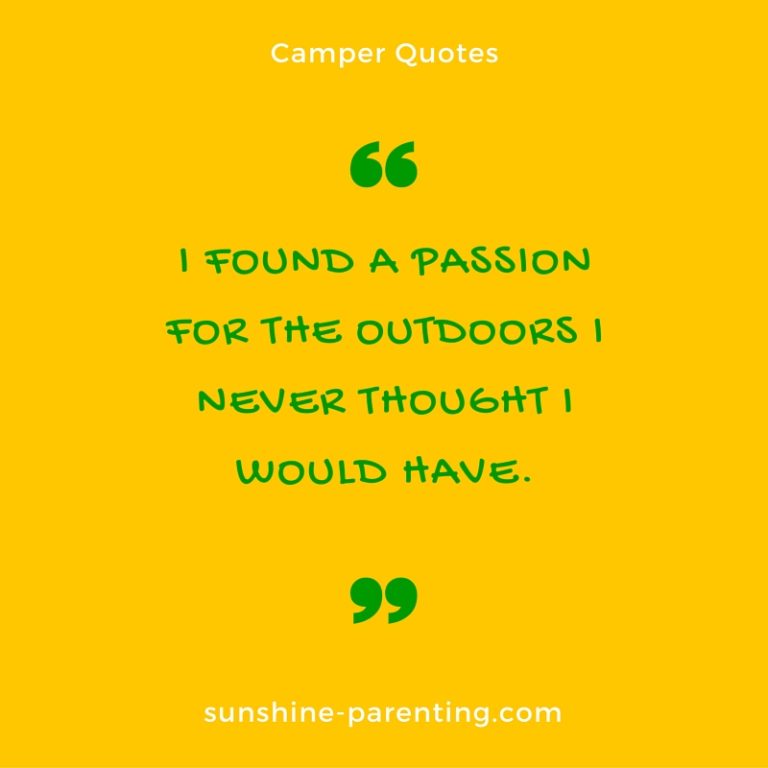
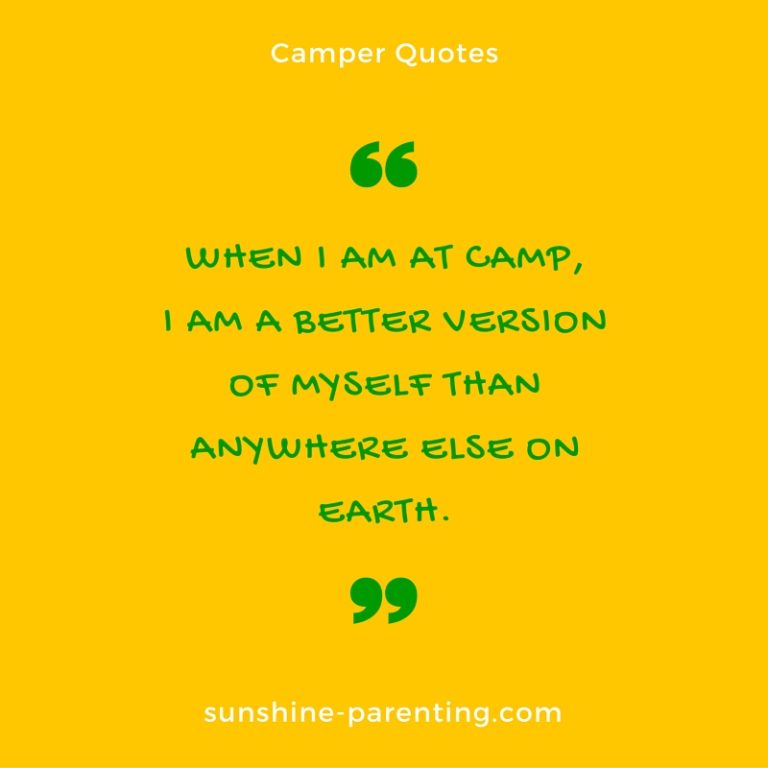
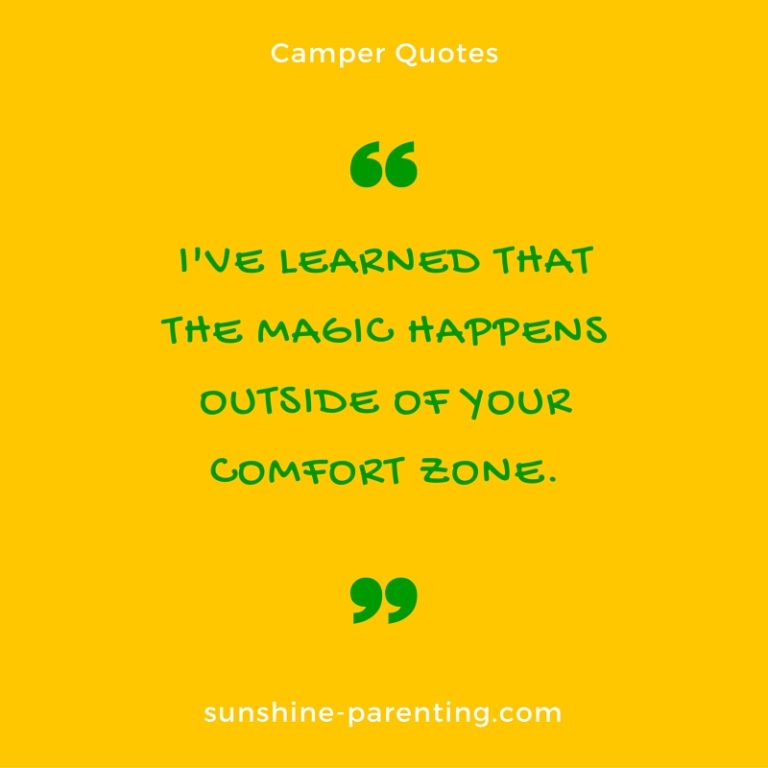
I reflect back on those and other words and see that these 15-year-olds have wisdom that many adults have yet to acquire. Truly, I was blown away by what they said they learned at camp, and I could see in their spirits what one of them expressed: “Being at camp has influenced me to be a better person who wants to be a leader, not a follower.” I feel honored to know these articulate, honest, and thoughtful young adults who do not fit the teenage stereotype and are far more mature than I was at their age. These kids chose sleeping outdoors and sitting around a campfire instead of hunching over their phones.
When I look back on those memorable campfires, I feel deep gratitude for our oldest campers, the life-changing experiences they had at camp, and that I had the opportunity to play a small role in their learning. I am also grateful for the parents of these kids who were willing to share time with their children, and a piece of their childhoods, with our camp. And I am reminded, as a parent, that although there are many things I want my kids to learn—and I’d love to be their teacher—many of their best lessons will come from experiences apart from, and from someone other than, me.
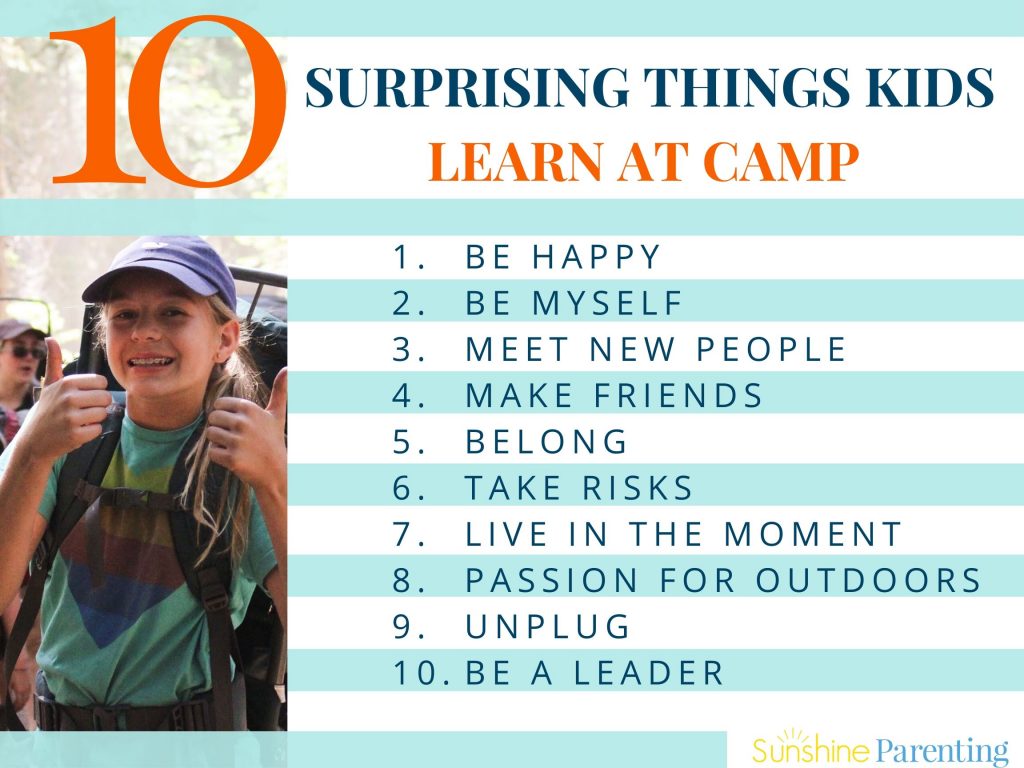
Article originally published at Sunshine Parenting.

Audrey “Sunshine” Monke, MA, has been the owner of Gold Arrow Camp since 1989 and currently serves as the Chief Visionary Officer. In addition to her vision-casting and mentoring at GAC, Sunshine is an author (Happy Campers: 9 Summer Camp Secrets for Raising Kids Who Become Thriving Adults), podcast host, speaker and coach on the topics of parenting, social skills, and happiness. Find out more at her website, Sunshine Parenting.
“Do you have a one week session?” is one of the questions we often get asked by parents who are new to our program. The question is usually preceded or followed by the comment, “Two weeks is too long for my child.”
I thought it would be helpful to outline for new parents why Gold Arrow Camp has a two-week session length as our primary camp offering. Although we also offer one-week Mini Camp programs at the end of the summer, Gold Arrow Camp’s core program is a two-week session, and that is the length of time the majority of our campers attend camp. We also have campers who are “Monthers,” who attend four weeks of camp by combining two, two-week sessions.
There are many benefits to camp, regardless of length of stay, as per this American Camp Association study. So, I urge you to find a camp that fits your family’s needs and schedule, even if Gold Arrow is not the best fit for you.
Our program, up until the 1970s, was a month-long program. Many traditional, East Coast camps still offer only one 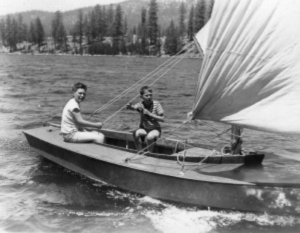 seven or eight-week session. To people in the West, this sounds crazy, as most programs on our side of the country are one-week in length. However, families who have been part of Gold Arrow and other traditional camp programs understand the benefits of a longer camp stay.
seven or eight-week session. To people in the West, this sounds crazy, as most programs on our side of the country are one-week in length. However, families who have been part of Gold Arrow and other traditional camp programs understand the benefits of a longer camp stay.
Many traditional camps in California have started offering one-week programs because that’s what many parents think they want for their child. Fortunately, our camp families have kept our two-week sessions consistently full, so we will continue to offer what we consider the best length for our program.
Why does Gold Arrow Camp have two-week sessions?
Community and Friendship Building
Breadth and Depth of Activities
Social Skill Development
Independence and Confidence Building
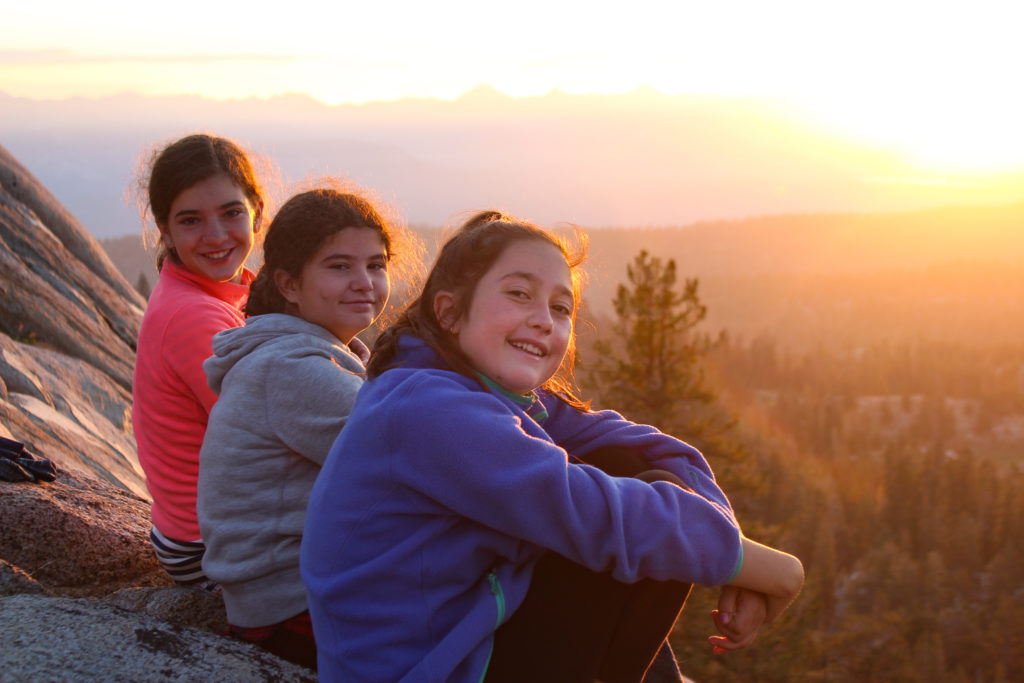
“My son has no fears about making friends at his new school because of the experiences he has at GAC. His self-confidence and outgoing nature are so nurtured at GAC that he feels prepared for anything!” – GAC Parent
While a lot of fun happens during even just one day of camp, spending more time connecting and building bonds with counselors, cabin mates, and other campers is one of the benefits of a two-week stay.
The first week of the session, there is an adjustment period for the first few days, when campers are getting settled and getting to know one another, the schedule, and the activities. By the middle of the first week, campers feel settled and comfortable at camp, and relationships have the opportunity to start getting deeper. Friendships, while they can definitely be formed in one week, have a better chance to grow stronger and deeper with more connection time.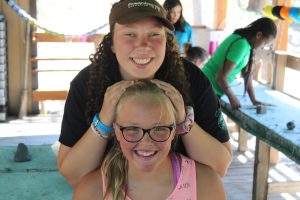
“My children lead busy lives during the school year with various teams and enrichment programs. Going to Gold Arrow Camp allows them to unwind and gain a new perspective on friendship, goals and life. From my perspective, GAC is summer the way it is supposed to be for kids. Thank you!!” – GAC Parent
Because all of the campers in the cabin group are at camp for the same length of time (two weeks), there are no departures and arrivals in the middle of the session to disrupt the group’s cohesiveness and the bonds that have developed. Everyone arrives together and departs together, with the exception of our Monther campers, who stay on for another session after their first two-weeks end.
“My son came to Gold Arrow for the first time not knowing any of his cabin-mates. By the end of his two week session, he had made great friends and wanted me to ensure he could be in the same cabin with them next summer. He had a wonderful time at all the activities, but the stories he tells most are the ones involving fun with his new friends.” – GAC Parent
We take advantage of our location on Huntington Lake, in the heart of the Sierra National Forest, by teaching campers a large variety of water and land-based recreational activities. Many of our activities require extensive time and instruction. Sailing, as an example, is an activity that begins with a 2 ½ hour group lesson, and can be followed up by many additional lessons as campers opt for more sailing during Free Time. Without adequate time, it would be impossible for campers to even get to all of the activities we offer, let alone build skills in them. We want our campers to get exposure to all of what is offered at camp, and have the opportunity to pursue activities they are passionate about.
During their two weeks at Gold Arrow, campers have the opportunity to learn to sail, ride a horse, shoot a rifle, get up 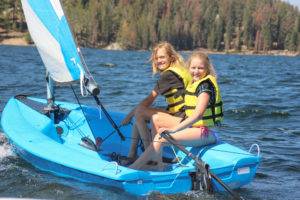 on water skis, and participate in a myriad of other activities. Many of these sports require time and practice to master. For first-time campers, two weeks is just enough time to expose them to all of the different activities and start practicing and improving skills. Returning campers continue to build upon and develop new skills, even after five or six years at our program. The depth of instruction offered, the opportunity to improve recreational skills, and the ability to earn different patches all distinguish Gold Arrow Camp’s program.
on water skis, and participate in a myriad of other activities. Many of these sports require time and practice to master. For first-time campers, two weeks is just enough time to expose them to all of the different activities and start practicing and improving skills. Returning campers continue to build upon and develop new skills, even after five or six years at our program. The depth of instruction offered, the opportunity to improve recreational skills, and the ability to earn different patches all distinguish Gold Arrow Camp’s program.
We have two outpost programs, away from our main camp, that take up a portion of the two-week session. We have a water sports outpost camp on an island on Shaver Lake where campers enjoy one or two nights camping on the beach. At Shaver Island, campers spend their days on the lake improving their skills in waterskiing, wakeboarding, and kneeboarding. While these sports are also done at our main camp on Huntington Lake, their stay at Shaver allows our two-week campers time to really improve their skills with a lot of “behind the boat” time. Our other outpost program is backpacking. All campers go on a one-night overnight backpacking trip and get to experience outdoor cooking, sleeping under the stars, and living in nature. There are some activities that we wait to do until the second week of camp, when campers are feeling connected and more comfortable taking risks.
Honestly, even two weeks seems short to us. We barely get campers to all of our activities, and it’s time for them to go home!
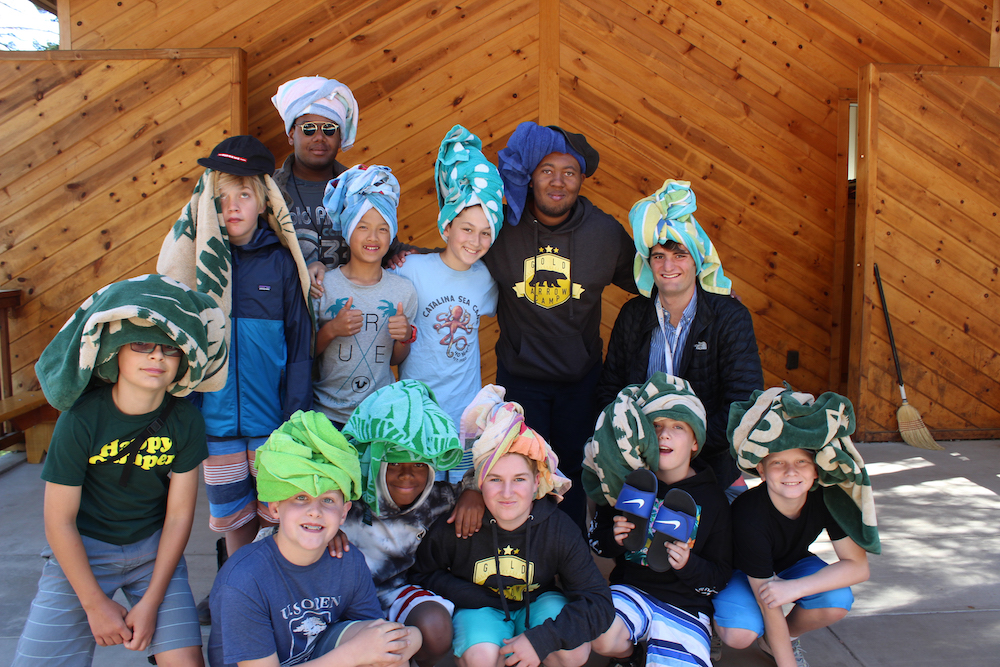
“Wonderful camp where my kids grew up and will have fond childhood memories. They both went from being scared and unsure their first summer, to loving camp at age 14 and wishing they could come back! I love the electronics-free policy – it is much needed, especially in this day and age, where kids and teens can enjoy the outdoors, making friends and having fun in the beautiful mountains!” – GAC Parent
Kids benefit from experiences living and working in groups regardless of the length of time. However, I believe that allowing a group to really bond and connect also allows kids to grow their communication, teamwork, and conflict resolution skills more than when they are in a shorter-term program.
“My son had no idea what he was going to as he had never been to an out of town camp before let alone away from me for 2 whole weeks. When he returned, yes he was tired but he had the time of his life! He wrote me half way through his stay at GAC and told me “this place is magical and awesome!” I am hoping to be able to send him next year as well. What a great experience for my 8 yr old son!!!” -GAC Parent
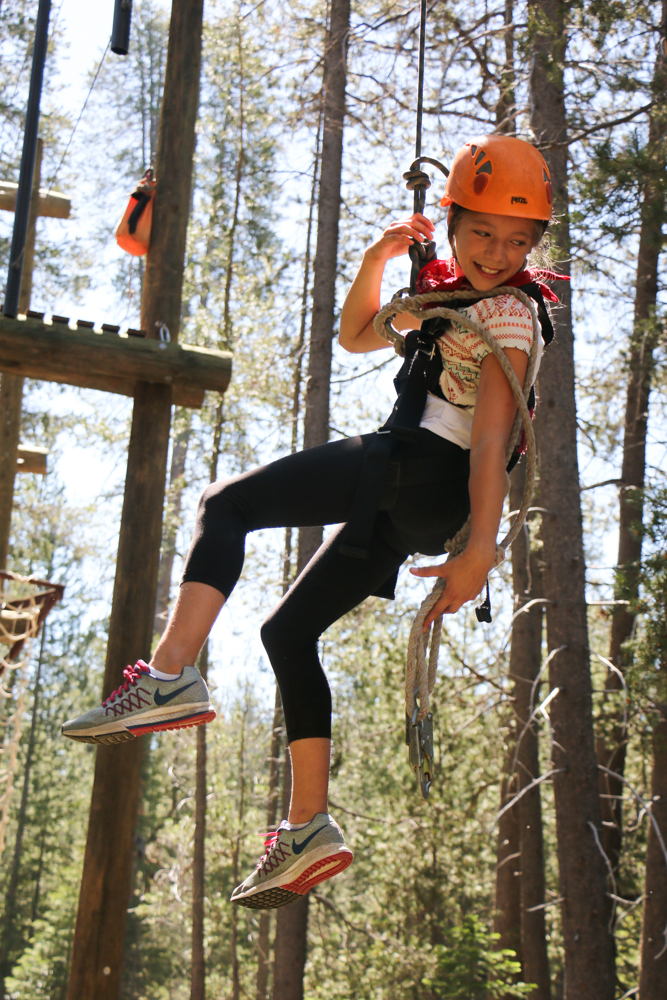 For many kids, their stay at camp is the first time that they have ever been away from their parents at all. Some have attended sleep-overs, weekend scout camps, or week-long school programs, but for many campers, their first stay at Gold Arrow is the longest they’ve been away from their parents. We know this, and our counselors are trained to help first-time campers get adjusted to being away and learn to cope with feelings of missing their parents.
For many kids, their stay at camp is the first time that they have ever been away from their parents at all. Some have attended sleep-overs, weekend scout camps, or week-long school programs, but for many campers, their first stay at Gold Arrow is the longest they’ve been away from their parents. We know this, and our counselors are trained to help first-time campers get adjusted to being away and learn to cope with feelings of missing their parents.
Campers feel a great sense of pride in themselves after “being on their own,” and having fun, without mom or dad nearby. While two weeks seem slow to parents, especially during their first camp experience, the days fly by at Camp.
“Our daughter always comes back from Gold Arrow the truest version of herself.” – GAC Parent
“A profound gap exists between the knowledge and skills most students learn in school and the knowledge and skills they need for success in their communities and workplaces.”
-Partnership for 21st Century Skills
“Having started at Gold Arrow as a little seven year old, I have grown up here. Camp has become my home away from home, and I can honestly say it has shaped who I am today. It has given me confidence and taught me skills far beyond learning how to wakeboard or horseback ride. I am comfortable with myself, I am patient, and I have learned how to become a leader.”
-Katie “Rascal” Baral, 10 year Camper
Parents, educators, and youth development professionals are well-versed in the phrase “21st Century Skills.” The phrase encompasses our current understanding of the urgent need for our children to be learning more than how to read, write, and do math. There are many other skills needed to grow into productive, successful adults. As I look at the list of 21st Century Skills, I am struck by how many of the skills are intentionally modeled and taught at camp. Following are five specific 21st Century skills that children learn at camp:
Campers learn to work creatively with others through working towards goals with their cabin group. Even something as simple as collaborating on a skit, song, or dance requires being open and responsive to different perspectives and incorporating group input. An important aspect of creativity and innovation is being able to “view failure as an opportunity to learn.” At camp, with every new and challenging activity, campers are encouraged to challenge themselves and persevere past failure. They learn that “creativity and innovation is a long-term, cyclical process of small successes and frequent mistakes.”
From the moment they arrive at camp, campers have the opportunity to practice and hone their communication skills. Gathered around the campfire on the first evening, campers talk about themselves in front of their small cabin group. They also listen to others share about themselves. At meals, campfires, and while walking around camp and participating in activities, counselors guide discussions about deeper issues and make sure all campers participate, even those who are less outgoing. Listening skills are addressed and enhanced through practice. Without the distractions and escape of technology, campers practice articulating thoughts and ideas and listening to the ideas of others throughout their time at camp.
When working together at Team Building, during cabin clean up, or while preparing for a performance, campers learn important collaboration skills. They learn that they need to be flexible. They often learn another important collaboration skills, which is that it is often necessary to make compromises to accomplish a goal. Counselors encourage campers to share responsibility for tasks and work together. Campers are also encouraged to value and acknowledge each individual contribution made by team members.
Learning to interact effectively with others is an important social skill that doesn’t come naturally to all people. At camp, counselors guide campers to learn when it is appropriate to listen and when it is appropriate to speak. Counselors also require that campers respectfully listen to others’ opinions and treat others with respect.
For many campers, their time at camp is their first opportunity to meet and live with people from other cultures. Camp offers the opportunity for kids to form friendships with staff and campers from other countries. Camp provides the opportunity for campers to gain a respect for and work effectively with people from a range of cultural backgrounds. On International Day each session, we celebrate and learn about our international campers and staff.
Guiding and leading others is an important 21st Century skill. In campers’ early years at camp, they learn basic responsibility for themselves and those around them. Even our youngest campers have the opportunity to lead others in a song or game. As they get older, campers gain more of an understanding of how their words and actions influence others, and they learn how to positively use their leadership skills.
While academics are important, children need other skills to be successful. Camp offers an ideal setting for campers to learn and enhance many of the non-academic 21st Century Skills. One line of our camp song says, “I sure did learn much more here than I ever did at school.” And, when learning is viewed as more global than the subjects listed on the report card, that is an incredibly profound and true statement.
Read about all of the 21st Century Skills at www.p21.org.

Audrey “Sunshine” Monke, MA, has been the owner of Gold Arrow Camp since 1989 and currently serves as the Chief Visionary Officer. In addition to her vision-casting and mentoring at GAC, Sunshine is an author (Happy Campers: 9 Summer Camp Secrets for Raising Kids Who Become Thriving Adults), podcast host, speaker and coach on the topics of parenting, social skills, and happiness. Find out more at her website, Sunshine Parenting.
A kid today can likely tell you about the Amazon rain forest – but not about the last time he or she explored the woods in solitude, or lay in a field listening to the wind and watching the clouds move.
-Richard Louv, Last Child in the Woods
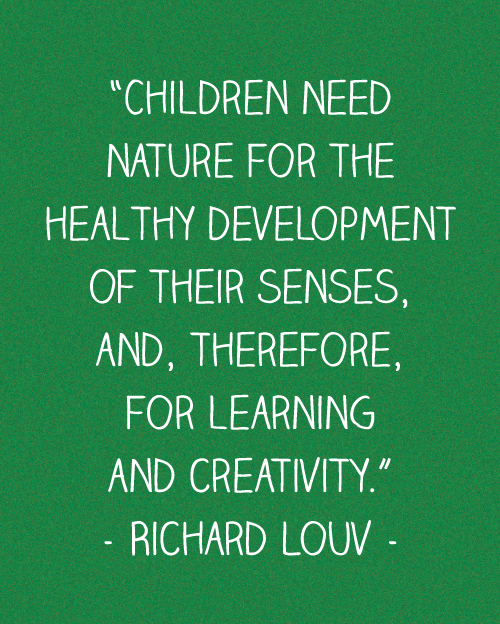 At GAC, “getting outside to experience the awe of nature” is one of our core values. Many of our campers, who primarily live in cities or suburbs, have never had the opportunity to live in and experience nature up close. The rustic set-up of our living areas, which are large tents on wood platforms, allows campers the feeling of being close to nature throughout their stay at camp. With no electricity (and the distractions inherent with being plugged into technology), campers truly get to experience living outdoors. From their tents, campers can hear birds chirping, the water running in the creek, and the breeze rustling the tree branches. Evenings include relaxing chats and stories around the campfire while the sun sets and the stars come out overhead.
At GAC, “getting outside to experience the awe of nature” is one of our core values. Many of our campers, who primarily live in cities or suburbs, have never had the opportunity to live in and experience nature up close. The rustic set-up of our living areas, which are large tents on wood platforms, allows campers the feeling of being close to nature throughout their stay at camp. With no electricity (and the distractions inherent with being plugged into technology), campers truly get to experience living outdoors. From their tents, campers can hear birds chirping, the water running in the creek, and the breeze rustling the tree branches. Evenings include relaxing chats and stories around the campfire while the sun sets and the stars come out overhead.
Campers experience the wonder of nature from the moment they arrive at camp, but there’s just nothing quite like being really far from “civilization” and even further out into nature. Because we’ve experienced how life-changing it is for campers, getting our campers even deeper into the woods is also a priority. With even fewer distractions than what they experience at main camp, our backpacking program serves the purpose of getting our campers completely immersed in nature. For campers who have completed 4th-5th grades (our “Tigers” age group), their cabin group is scheduled for a one-night overnight backpacking trip. Campers get to experience exploring, sleeping, cooking, and living in an even more rustic setting than their camp tent home. I wrote about one of these magical Tigers’ backpacking trips in my post, “Nature Pees and Lanyard Fishing Poles.” Our older campers, the Lions and Eagles (who’ve completed 6th-9thgrades), have the option of signing up for a backpacking trip, one of the most popular choice options for their free choice days.
But a highlight of the two-week session for our youngest campers (grades K-3), and their version of “backpacking,” is Bears’ Adventure. This one-night trip allows campers to experience sleeping outdoors under the stars and cooking over a campfire. Campers’ luggage is taken for them to the campsite, so they are not technically “backpacking,” because they have no pack to carry. With just their water bottle and their positive attitudes, they set out from camp singing and talking on their hike. Once they get to their destination, which feels far from camp (although it is less than a mile away), they are rewarded with a spectacular view of Huntington Lake and the surrounding wilderness area. They truly get the feeling that they have been on a long, adventurous hike.
The best part of Bears’ Adventure is the free time kids get to play and explore the area. For many campers, the longer sticks provide the perfect start to a fort. Others enjoy laying on their sleeping bags talking with friends or silently watching clouds move overhead. Some participate in crafts and games while enjoying being outdoors. For many of these kids, Bears’ Adventure is their first experience “roughing it,” and they absolutely love it.
When they hike back into camp the morning after their Adventure, our Bears’ campers stand a little taller. And their dirty, smiling faces are the best indication that they have experienced the awe of nature.
Listen to Episode 87 of the Sunshine Parenting Podcast: The Impact of Camp Experiences with Dr. Laurie Brown.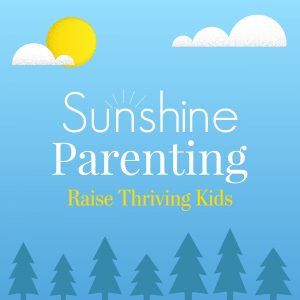
In this episode of the Sunshine Parenting Podcast, I interview Dr. Laurie Browne, Director of Research for the American Camp Association, about the five-year camp impact study being done by an external research team through the University of Utah. The study explores the lasting impacts and the ways camp experiences prepare young people for college, their careers, and their lives beyond camp.
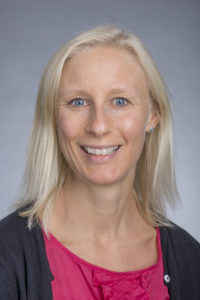
I hope you enjoy this conversation with Laurie and learn more about the incredible research that’s finding that camp truly does have an amazingly positive impact on the development of young people.
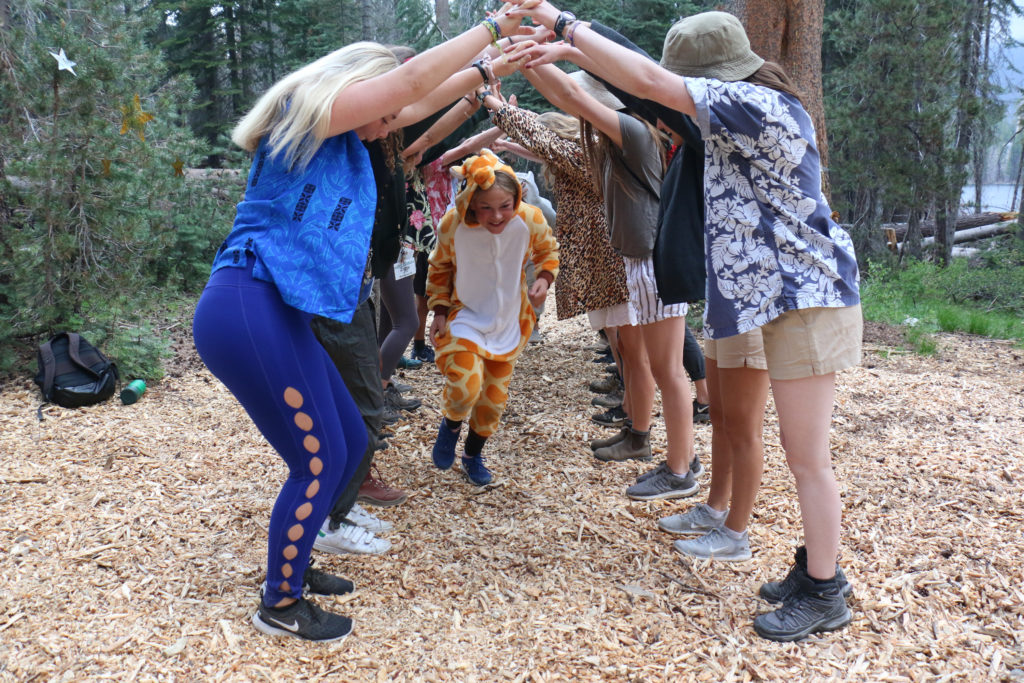
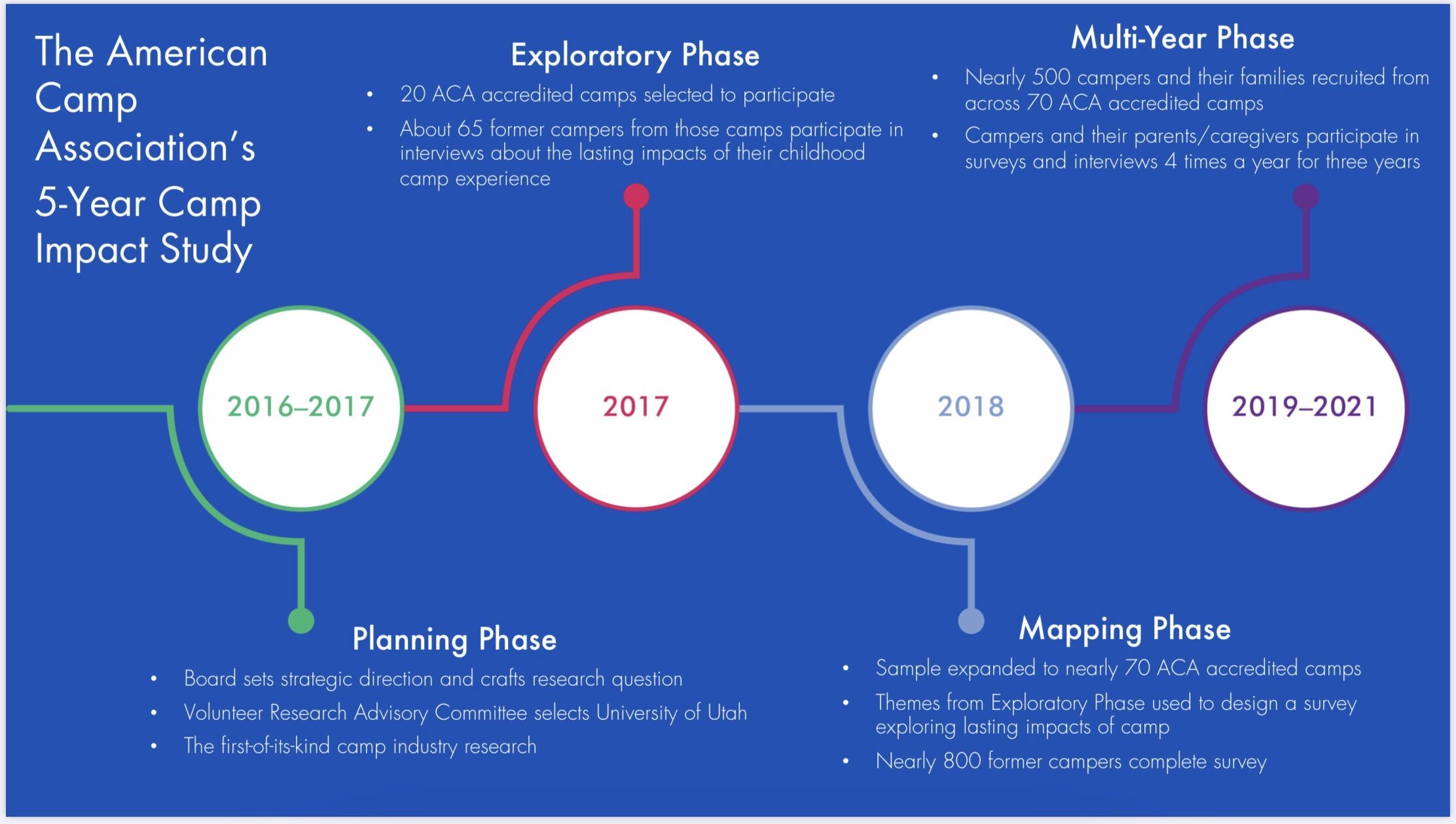
LAURIE: “This is a multi-layered study which builds off itself, starting with qualitative approaches, interviews, and surveys. Then the findings were quantified and a longitudinal study was designed which is tracking campers and their families over time.”
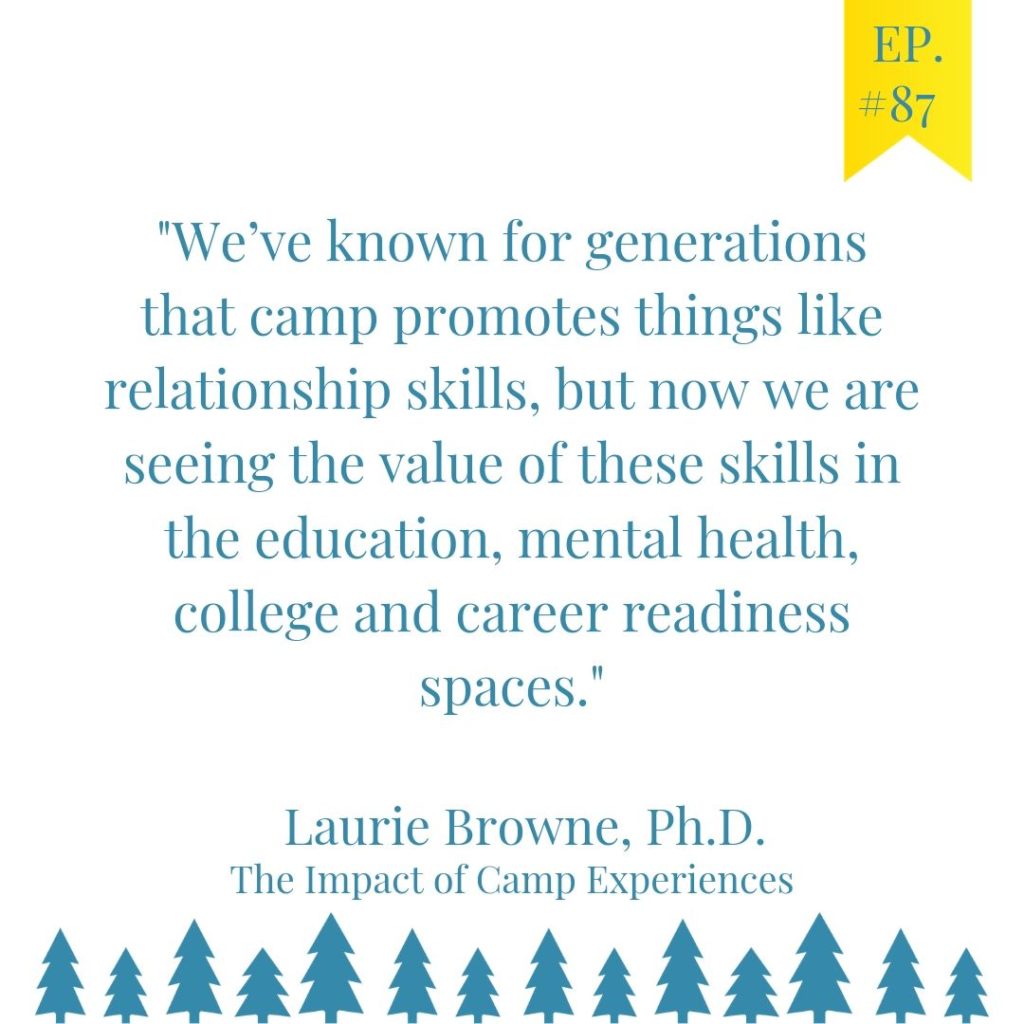
LAURIE: “We’ve known for generations that camp does great things for kids. But I think the environment is far more ready for the type of social, emotional learning related outcomes that camp provides. We’ve known for a hundred years that camp promotes things like relationship skills, but only now we are seeing in the education, mental health, college and career readiness spaces, the value of relationship skills. We have employers saying that is the number one skill they expect in college graduates. That is harder and harder to find.”
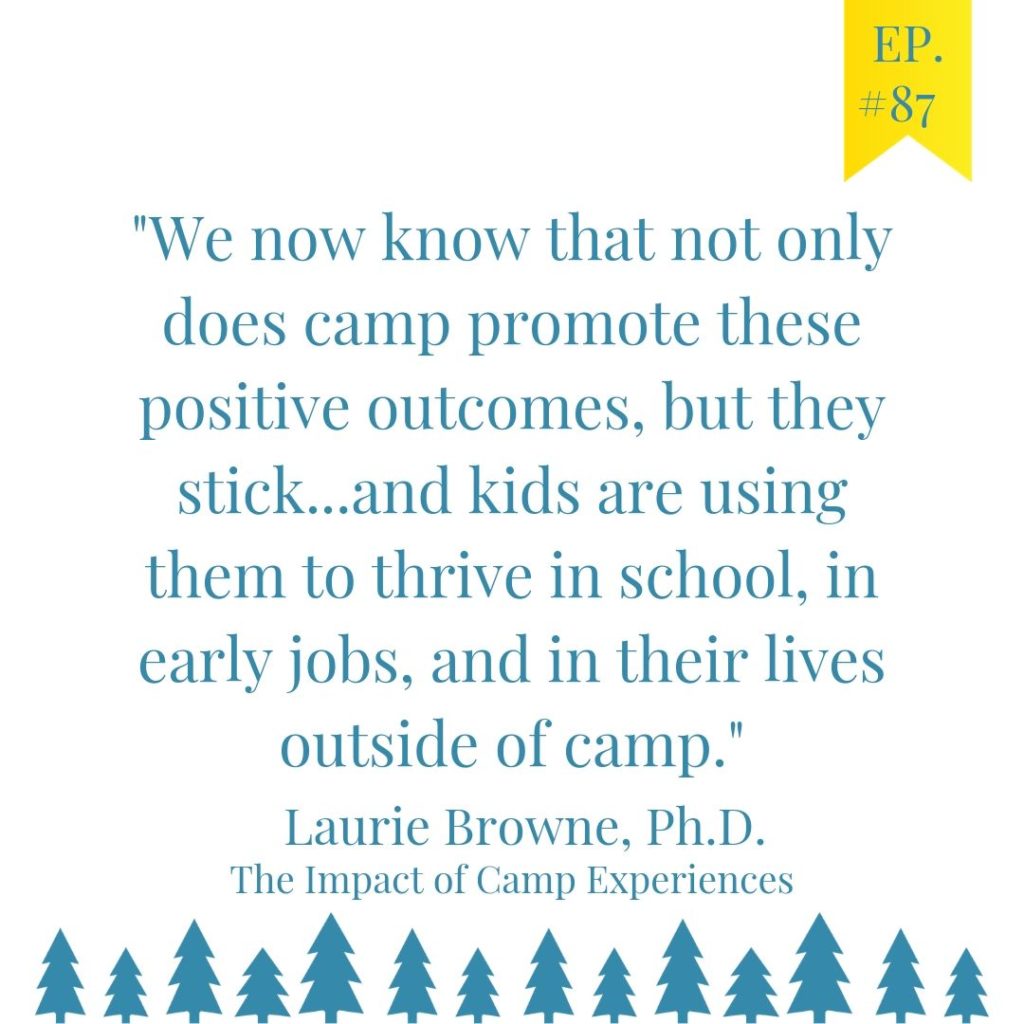
AUDREY: “Other places (school, sports) have another focus that is their most important priority (academics, sports skills) but at camp, our number one focus is on the community building, the cultural building, and training our counselors to facilitate friendships and relationships among campers.”
LAURIE: “It all layers on top of one another, the interplay between camp and school and home. All the spaces work together to create a thriving, successful child. And now we know that camp plays a very unique—even critical—role in that overall landscape.”
LAURIE: We’re interested in the family dynamic around camp. How do families choose to go to camp? How do they integrate camp with the other things in their lives? (In this study) parents are emerging as beneficiaries and have their own outcomes relating to camp. We’re specifically having parents share with us the value and benefits to them of sending their kids to camp, day camp and overnight camp. Parents are recognizing that kids come home and in many cases, are more active citizens in the family. So it improves family processes when they send their kids to camp. But specifically, in overnight camp experiences, parents are saying, ‘I’m a better parent. I get some time to connect with my partner, to engage in some of the things I don’t always get to do when I am busy caretaking.’ Then when the kids come back, they are really happy so as a family unit, it brings all kinds of benefits to parents as well.”
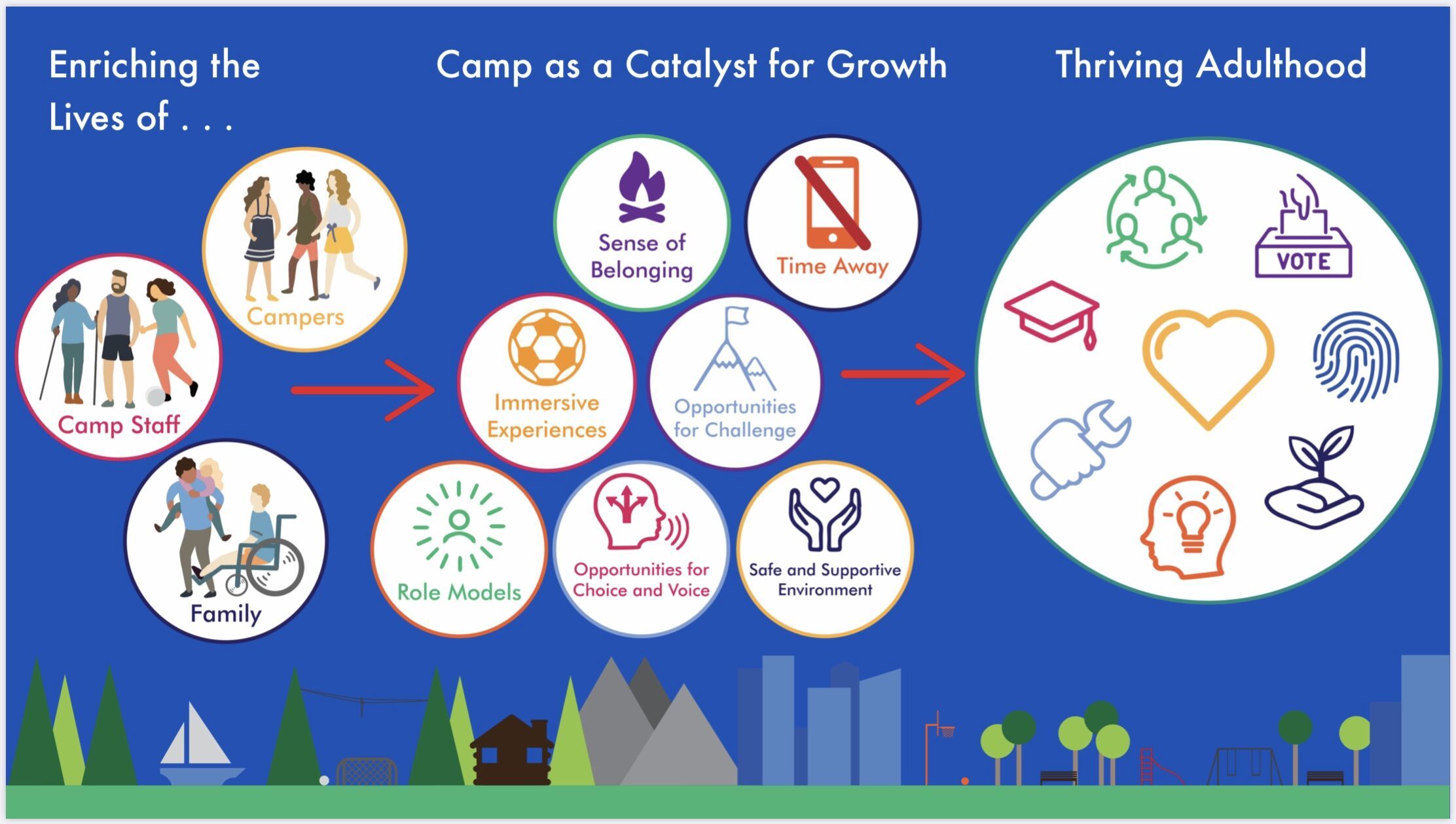
AUDREY: “I’ve heard from many parents that it’s almost a relief to know their children are being taken care of. They can relax. They don’t need to be monitoring, following, texting. It’s a much-needed break for parents who feel so much pressure to be so involved with everything. For so many parents who are working and taking care of kids, their lives are so full that what often gets neglected is their own well-being and what brings them happiness.”
AUDREY: “I tell parents to use the time when their kids are at camp to have their own ‘camp’ type of well-being experience: be with your spouse, your friends, do hobbies that you don’t normally have time to do, so that when your kids come home and have all these great things to share about what they’ve done, you can share, too.”
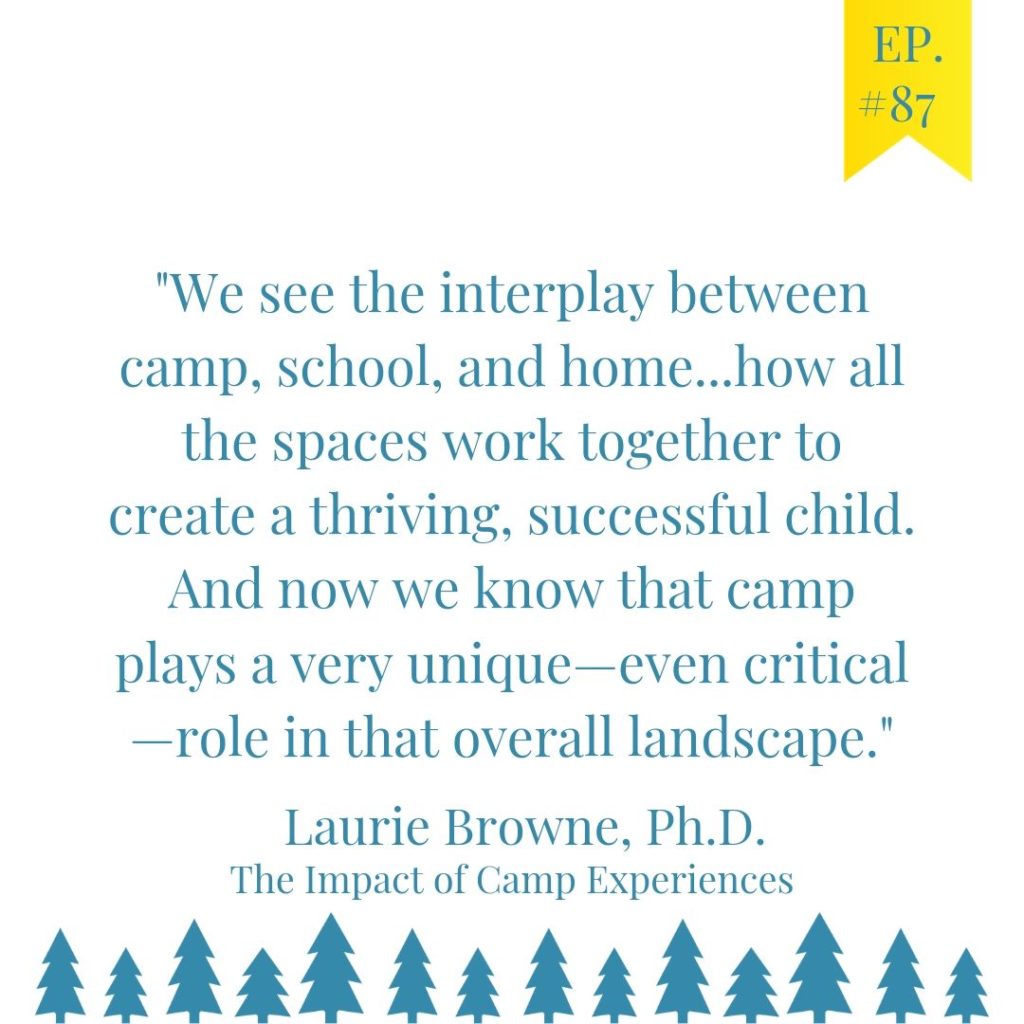
LAURIE: “We have to cultivate happiness by doing things other than work and caregiving. It’s an investment in our own well-being and we are better parents when we make that investment. I think as mothers we feel really inclined to set aside our well-being for our kids. But now there’s so much dialogue around the importance of our time away from kids and to know that your child is thriving because they’re apart from you, is literally one of the findings we are seeing.”
LAURIE: “The opportunity for kids to practice a sense of independence and from that, they can develop a true sense of responsibility and not just that they do their chores but they see themselves as a responsible contributor to their family, to their community and they get to practice that at camp. There are benefits to campers and parents.”
AUDREY: “Even if you don’t send your kids to camp ever, it’s important to find other adults who can mentor your kids because there are some things that your kids either won’t do with you there or will be more tentative about trying. It’s okay for parents to know that you’re not supposed to be able to teach your child everything. That’s why you have teachers at school, sports coaches, camp counselors…So much of who my kids are is because of these amazing role models. How fun for them to get to learn from and interact with other adults. That’s the other lesson that camp can provide for parents: You don’t have to feel like you’re alone in this.”
LAURIE: “Camp counselors are simply younger and more relatable than a lot of the adults that kids encounter in other spaces of their lives. That closeness in age is a really critical opportunity not just for mentorship but for kids to see themselves as an emerging adult. Camp counselors seem attainable. Our staff members are the ones that are really modeling these outcomes, facilitating opportunities to learn and helping those outcomes to stick over time.”
AUDREY: “I think parents looking at camps need to know that you don’t need a fancy facility or fancy equipment. It really is all about the camp counselors—how they treat kids and how focused they are on the kids as their top priority.”
LAURIE: “A culture of caring, a culture of inclusiveness, a culture of belonging is created by all the people combined. We have staff, and then we have campers, but you put all of them together with the traditions and the norms of camp and that creates a culture that in and of itself is so powerful as a mechanism for lasting learning. It’s about intentional culture building around care, safety, and inclusiveness—it’s really what matters.
LAURIE: “What a great opportunity to practice being a member of a community that isn’t their family—especially in adolescence. As kids grow up, they have to be able to see themselves in worlds outside of their homes. That’s a critical part of their developmental process.”
LAURIE: “Kids are making connections between camp and home and school. What a great opportunity for parents, educators and camp professionals to help bring more visibility to those linkages. Help campers identify the connections between them.”
AUDREY: “We have kids reflect before they leave camp about what they’re going to bring home with them. We ask them, ‘what have you learned here that you’re going to use in your life’ and it’s amazing to hear them articulate what they’re going to take back. They learn these great things but they need to take the time to figure out how they’re going to translate this to the rest of their life, the other weeks of the year beyond camp.”
LAURIE: “Research is exciting, but it really doesn’t matter near as much as what really amazing camp professionals are doing with campers and staff. That’s where the magic happens.”
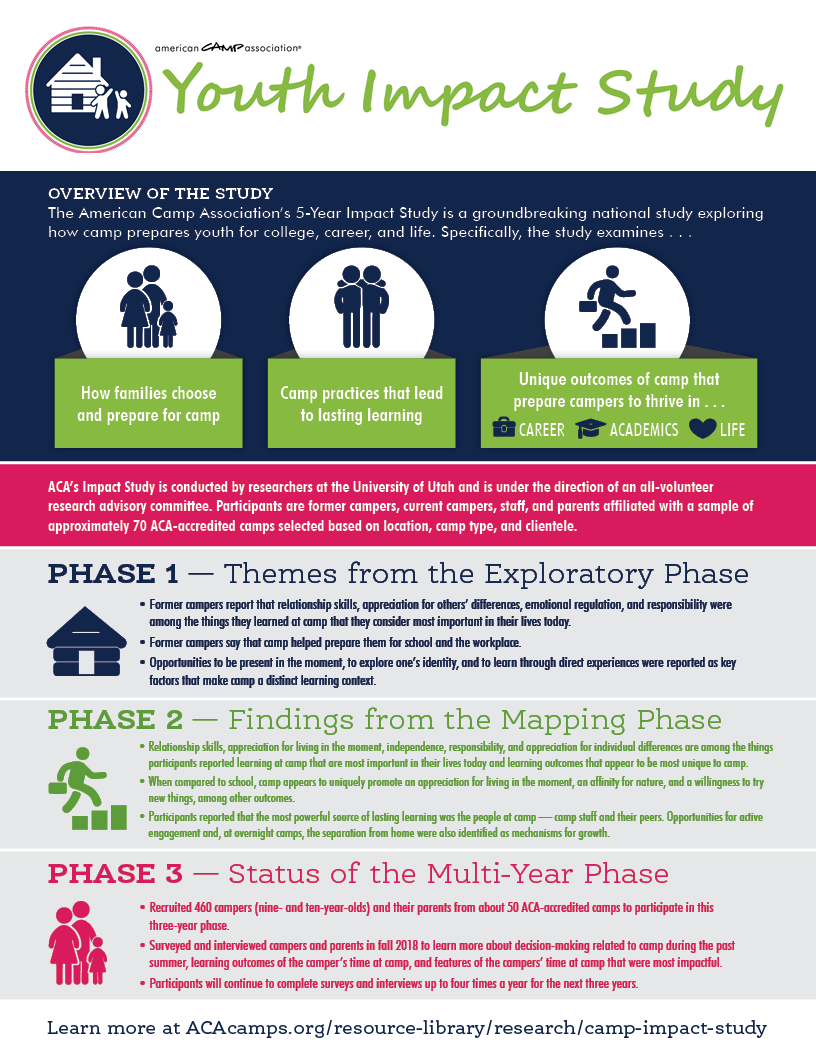
Susan Pinker– The Village Effect Ted Talk
Research finds Children Learn Social Skills at Camp
Ep. 32: 10 Benefits of Summer Camp for Teens
Podcast originally published at Sunshine Parenting.

Audrey “Sunshine” Monke, MA, has been the owner of Gold Arrow Camp since 1989 and currently serves as the Chief Visionary Officer. In addition to her vision-casting and mentoring at GAC, Sunshine is an author (Happy Campers: 9 Summer Camp Secrets for Raising Kids Who Become Thriving Adults), podcast host, speaker and coach on the topics of parenting, social skills, and happiness. Find out more at her website, Sunshine Parenting.
Listen to Sunshine Parenting Podcast Episode 91: 4 Reasons Not to Worry While Your Kid is at Camp.
Worrying when our kids are away from us is normal for parents. Every time I’ve ever dropped my kids off for a new adventure without me, I’m excited for them. But I’m also concerned about their safety, secretly wishing they would just STAY HOME, then counting the days until they return. I know it’s not rational (few things about parenting are), but I believe my kids are always safest when they’re home with me.
If you are new to sending your kids to summer camp, let me reassure you that while they are away, you can relax your worrying muscles. I’ve spent more than three decades working at a summer camp, sending my kids to other camps, and participating in the networking and training of summer camp professionals. I know A LOT of camp directors, have visited many camps through the American Camp Association accreditation process, and am a faithful reader of Camping Magazine. I definitely know about camp.
In Episode 91 of the Sunshine Parenting Podcast, I chat with my longtime friend, Camp Owner/Director Maria Horner. Maria and her husband, Tom, have been the executive directors of Catalina Island Camps since 1995. In this episode, we discuss four reasons not to worry while your child is at camp.
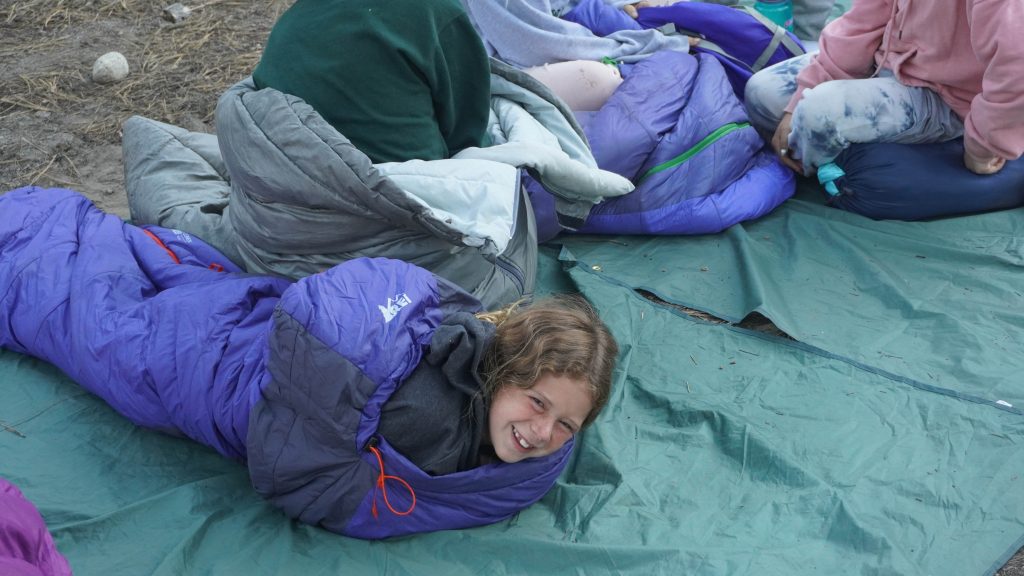
You have chosen a camp program that’s accredited by the American Camp Association. This means that the camp meets the ACA’s high standards to ensure a safe and nurturing environment for your child.
You have been in touch with the camp director. Always be upfront with any issues your child may be dealing with so that the staff can be prepared to help them. Take time review at all the material that the camp has sent you ahead of time and phone them with any questions you may have.
You have prepared your child for the experience:
You have prepared yourself for the experience:
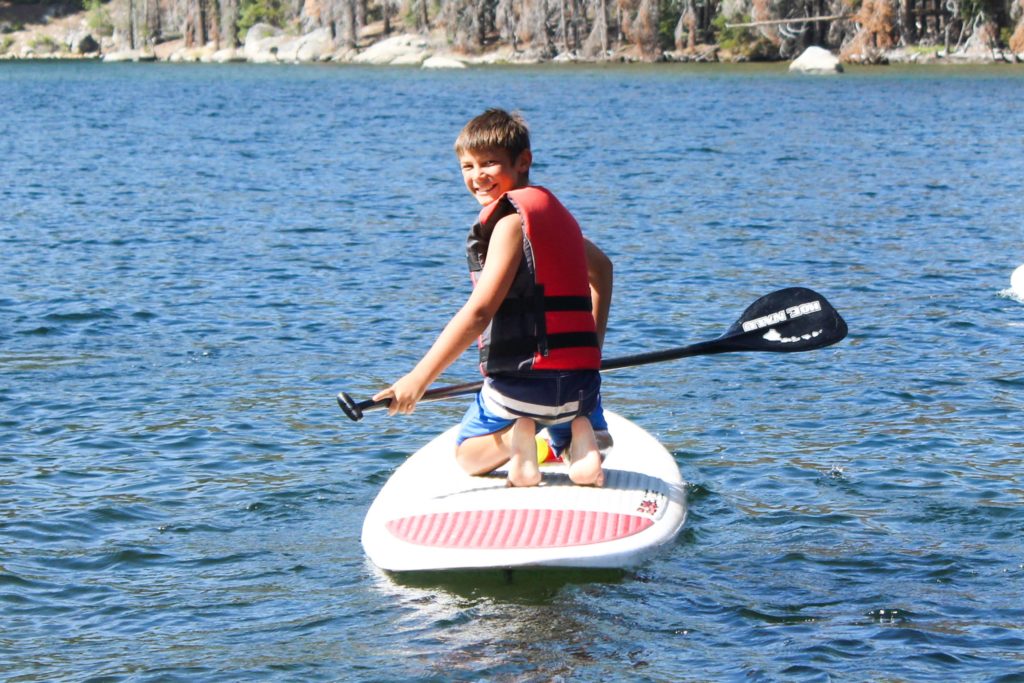
Want more reasons not to worry? Read this Sunshine Parenting post: 5 Reasons NOT to Worry While Your Kids are at Camp.
Audrey: “One of the reasons not to worry is actually the amount of training we do with our staff.”
Maria: “You chose an accredited camp, so if you’re coming to my camp, or if you’re going to any other camps in your Happy Campers group, those camps are all accredited by the American Camp Association, which means that those camps care enough to undergo a thorough peer review of its operation. And that includes everything from staff quality and training to emergency management–all things that they’re doing voluntarily to ensure that their program is top notch.”
Maria: “Camp professionals from around the country can volunteer to be what we call standards visitors. So every five years, a team of trained standards visitors go into each accredited camp and observe, both through documentation and practices actually in place, based on the identified standards, to see that the camps are in compliance with all of them.”
Maria: “If you’re going to allow me to take care of your child for two or three or four weeks during the summer, I’d actually think it stranger if you don’t want to talk to me first. I would imagine you would want to know who’s the person in charge of the place where your child’s going to be spending a lot of time. Pick up the phone and actually talk to the person who is running the show.”
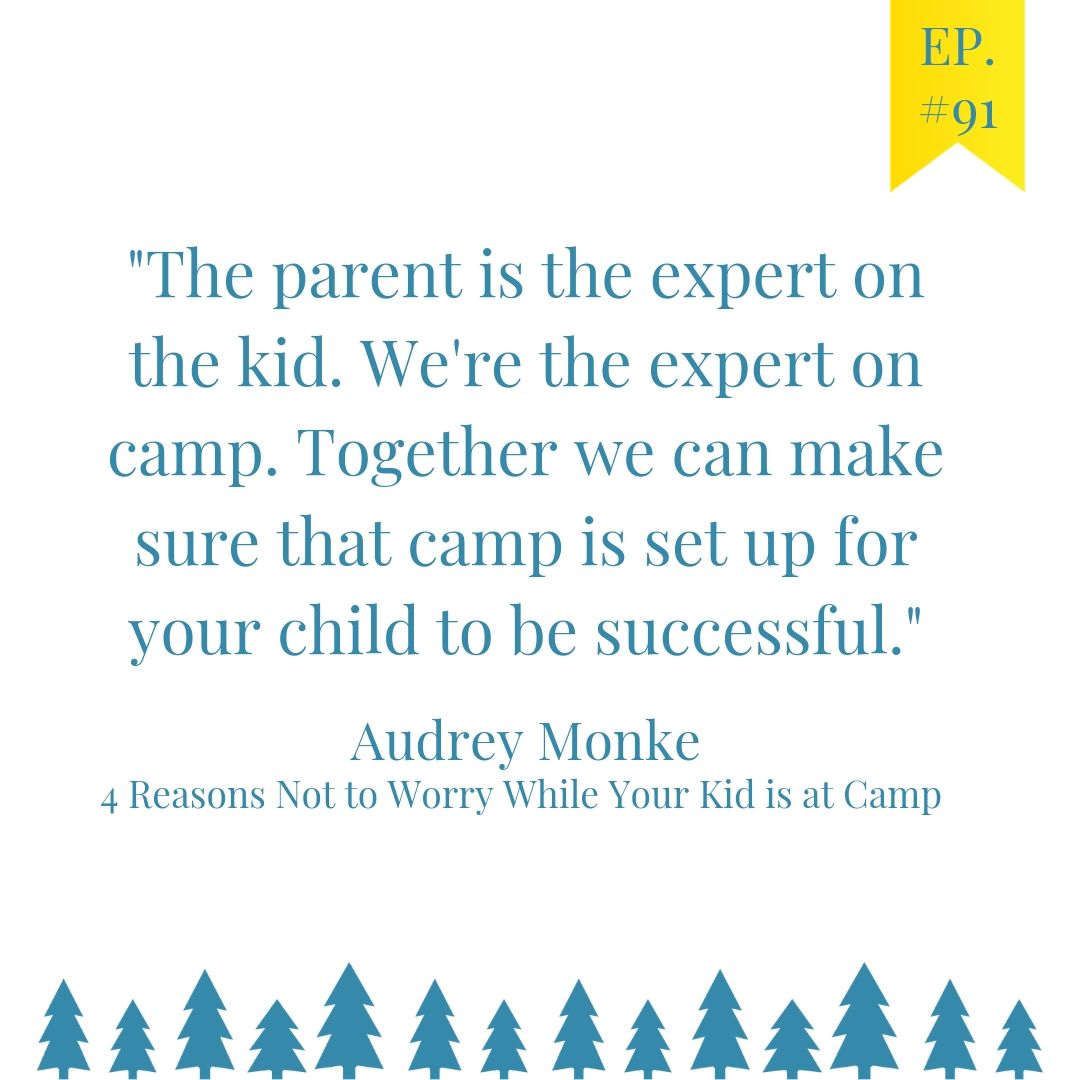
Maria: “I really encourage parents to be as upfront and transparent about your child as possible. We can do a lot at our camp and we can do it way more successfully when we know in advance. If we have to spend a few days figuring out what’s going on with the kid, either socially or behaviorally, or even with their food issues, that’s time lost. If we knew that up front, we would be able to meet those needs right from the very beginning.”
Maria: “Get online and watch videos from camp. Besides our promotional videos, we have a program with our go-pro cameras and the kids make videos every summer. And that’s a great way to get an insight into what camp looks like through the eyes of our campers.”
Maria: “I think you really want to focus on the fun when you talk with your child. I think definitely engage your child in conversation to get a sense of their excitement level and if there are things that they are nervous about, you work together to develop strategies for the child to be able to address those.”
Maria: “It’s okay for me to be nervous, as a mom. It’s not okay for me to project that onto my child.”
Audrey: “What I really want parents to communicate to their kids is: ‘Hey, at camp there are all these adults there to help you have a great experience. So if you need anything and I’m not there, here are some people you can talk to: your counselor, the camp director Maria, the head counselors.’ I think that if you look on the website, or call the camp, you can find out who those people are. I think that empowering your kid to talk to those people is really important.”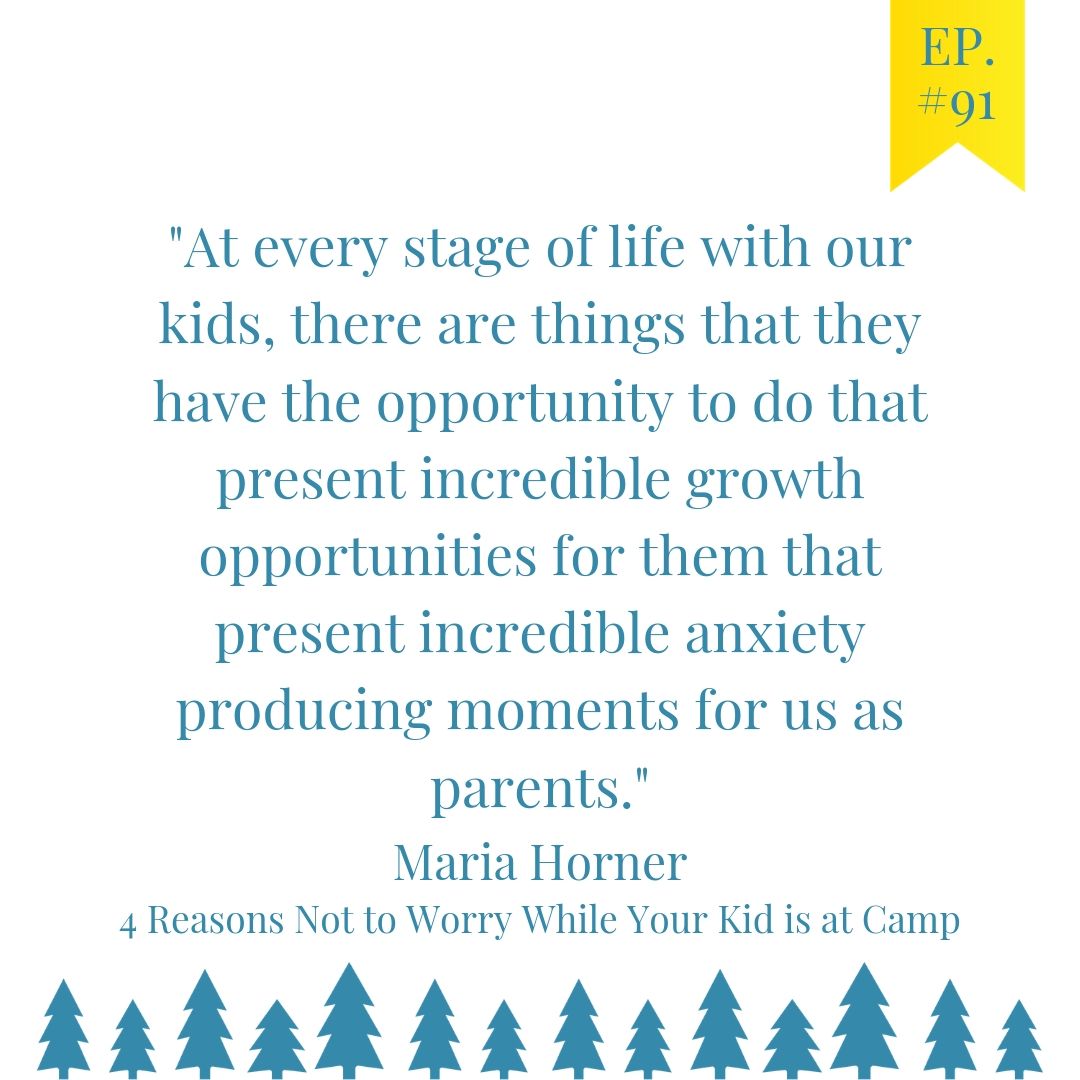
Audrey: “I do think we are very connected with our kids, which is a good thing and close relationships are fantastic. But the dark side is that it makes it a little harder–when your child’s doing something independent from you–for you to have the separation.”
Maria: “One of the things that I often tell parents is to really take advantage of this opportunity. Consider what it means to have some time either just to yourself or for you and your spouse together. That doesn’t happen very often in the craziness of life and raising children.”
Maria: “We tell kids, it’s okay to miss home when you’re at camp. You can miss home and still have fun at camp at the same time. Those two things aren’t in conflict with one another. The same thing is true for the parent’s side. Of course, you miss your child and worry about them. That’s to be expected. And you can still allow them to have this amazing growth experience, even if you’re a little bit nervous.
Audrey: “Give yourself permission to enjoy yourself. Spend some more time on a hobby you haven’t had time for, go out to dinner, go to movies–there’s nothing wrong with that. And actually, you giving your child the gift of a more relaxed, happier parent when they get home from camp is amazing.”
Maria: “It okay to have an incredible experience not all together. It’s okay to let your child do fun things without you and it’s okay to do fun things without them.”
Audrey: “It’s always this kind of mixed bag; you’re excited for your kid when they have some new adventure or get some great job far away, but then you’re also like, ‘Oh bummer. They’re kind of far away.’ I think always keeping these things in mind that it’s okay to have both feelings.”
5 Reasons NOT to Worry While Your Kids are at Camp
100 Questions about Summer Camp
Why choose an ACA accredited camp?
What are good questions to ask when selecting a camp program?
Ep. 10: Homesick & Happy with Michael Thompson, Ph.D.
Ep. 76: Partnering with Your Child’s Camp Director
Ep. 37: How to Prepare for Overnight Summer Camp
Ep. 87: The Impact of Camp Experiences
How to Raise an Adult, Julie Lythcott-Haims
How Camp Helps Parents Raise Adults
Ep. 22: Jedi Mom Tricks, Part 1
Ep. 33: Jedi Mom Tricks, Part 2
Ep. 42: Jedi Mom Tricks, Part 3
Podcast originally published at Sunshine Parenting.

Audrey “Sunshine” Monke, MA, has been the owner of Gold Arrow Camp since 1989 and currently serves as the Chief Visionary Officer. In addition to her vision-casting and mentoring at GAC, Sunshine is an author (Happy Campers: 9 Summer Camp Secrets for Raising Kids Who Become Thriving Adults), podcast host, speaker and coach on the topics of parenting, social skills, and happiness. Find out more at her website, Sunshine Parenting.
Wendy Mogel’s best selling book, The Blessing of a Skinned Knee, resonated with me.
I can relate much of her message to camp and to my own family. I heard Dr. Mogel speak at a camp conference several years ago, and she continues to be active in the camp community. Many of our camp parents have heard her speak at school parenting events or have read her book. If you haven’t had a chance to read The Blessing of a Skinned Knee, I highly recommend it. In addition to sharing about the importance of letting our kids take healthy risks, and not always rescuing them from failure, Mogel gives many other valuable insights. She has recognized the value of camp experiences in the development of emotionally healthy kids, as you can read in the article “Camp Blessings” on her website.
A question I often get asked, especially by kids who haven’t yet been to camp, is “What if I don’t want to do an activity?” Sometimes it starts with a statement, “I don’t like horses. Do I have to do that activity?”
My short answer is, “You won’t be forced to do any activities, but you will still go with your group, and you will be encouraged to try.”
I think there are three main reasons kids don’t want to do a particular activity, and they are the same reasons why adults often choose to forgo some recreational options:
A previous negative experience with the activity, usually not at camp and not with experienced instructors. Falling off a horse, being dragged behind a ski boat and not getting up, or getting lost on a hike are all examples of negative experiences that make a person naturally inclined not to want to try again.
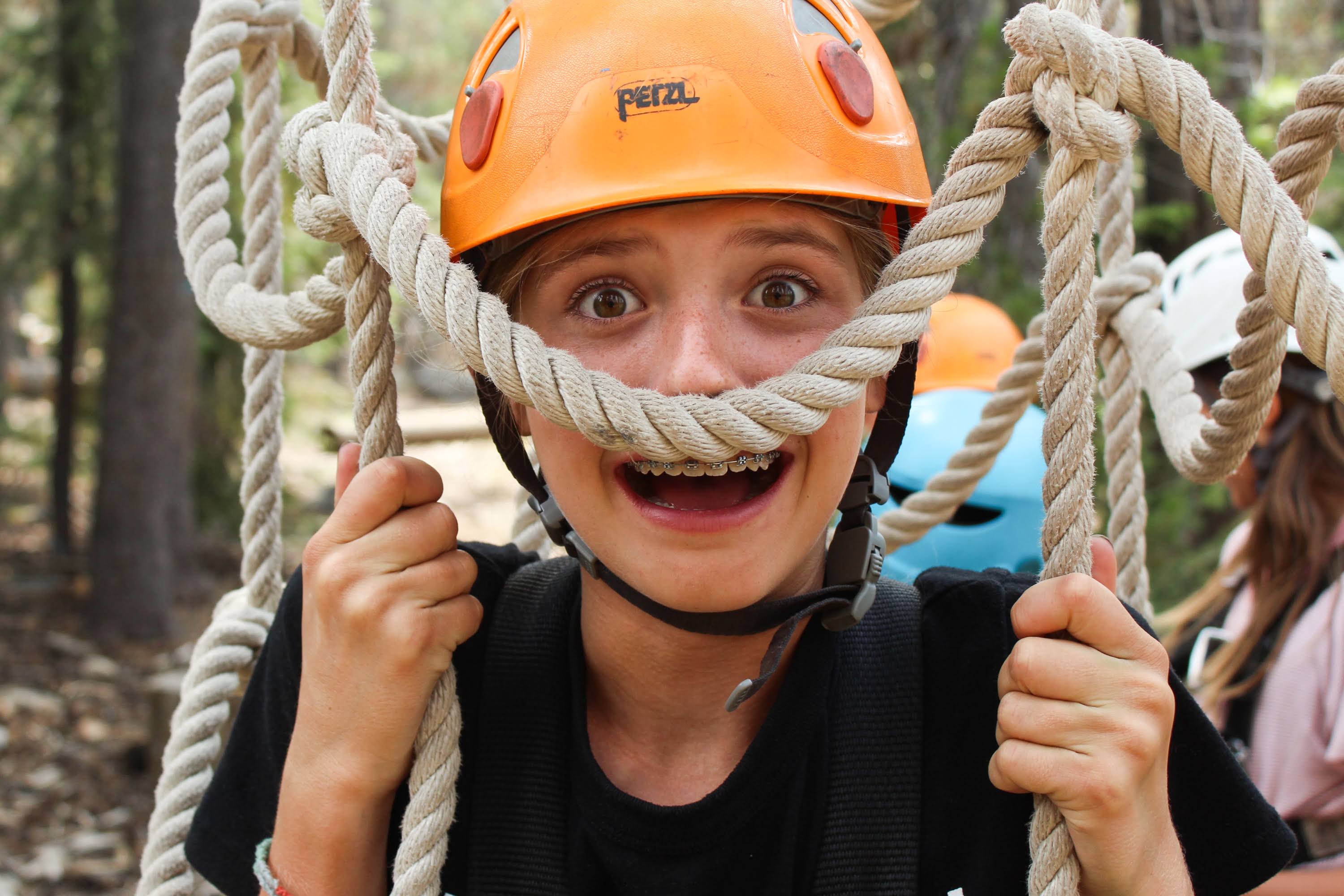
Fear of being humiliated. Fear of failure. Fear of heights. Fear of deep lake water. Fear of rocks. Fear of going to the bathroom in the woods. Fear of getting hurt. The list goes on and on.
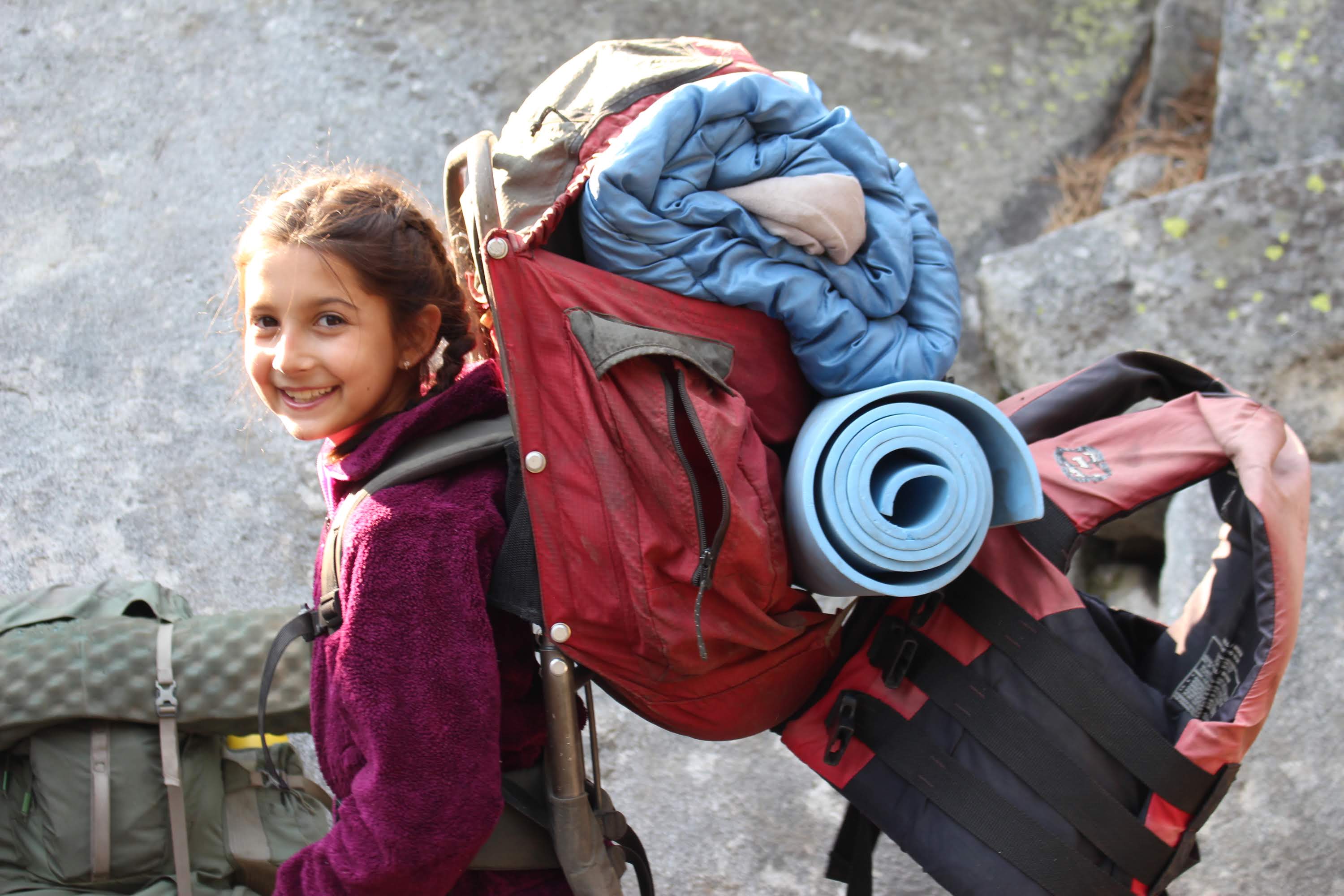
Finally, another reason kids don’t want to try an activity is because, based on their perception of themselves or their past successes/failures, they think they won’t like it. It’s not in their normal repertoire of things they like and/or are good at.
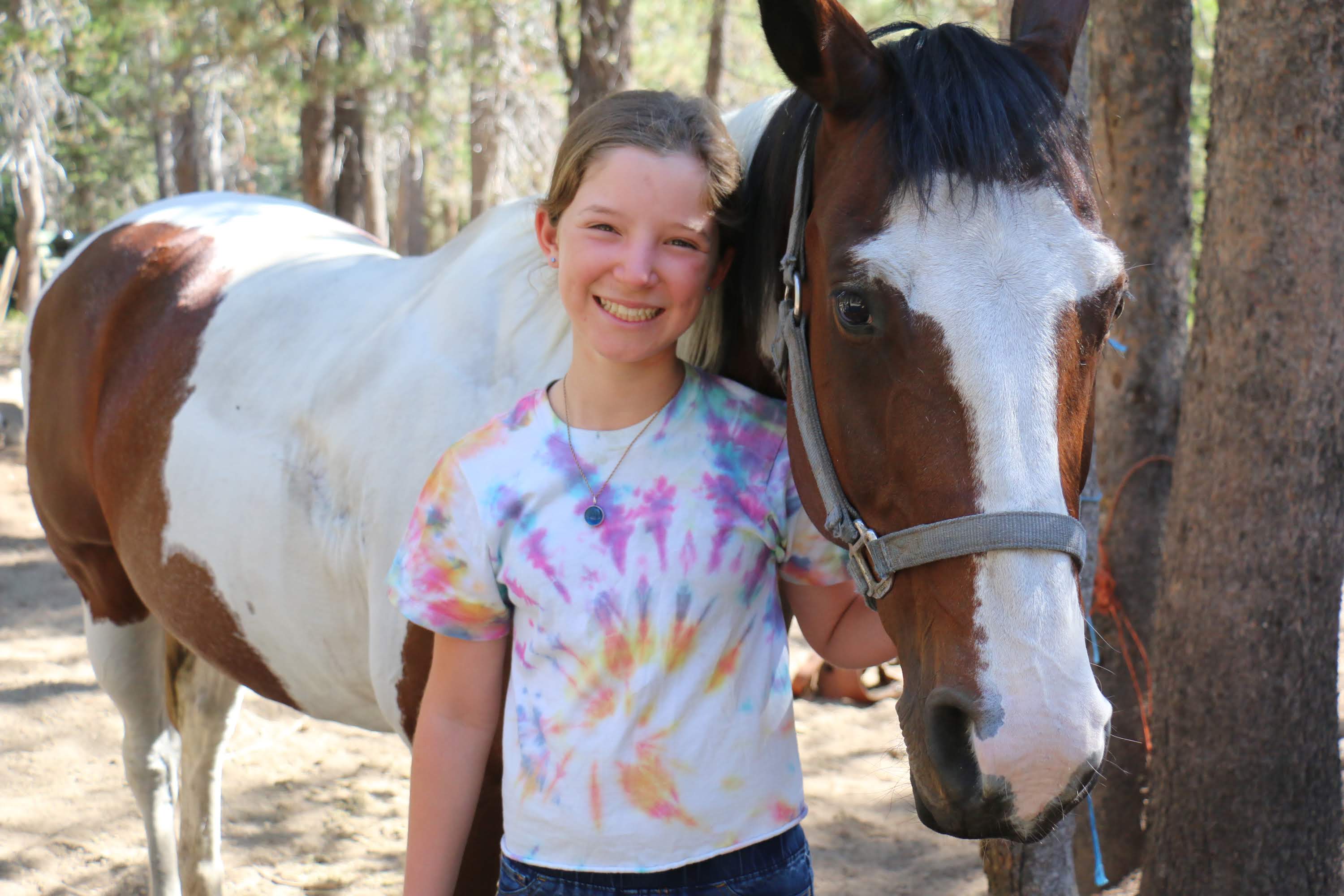
I’m sure there are other reasons for kids to not want to do an activity, but these are three that readily come to mind from what campers have told me over the years. Interestingly, the reasons kids don’t want to do an activity are the very reason trying the activity may be the best thing that happens at camp for that camper.
If a child doesn’t want to do an activity because of a previous negative activity, trying it at camp could lead to either a changed mind (and a new activity they like), or, at the very least, a not-as-negative experience to remember.
If a camper doesn’t want to do an activity because of fear, then trying the activity could be the most life-changing event that occurs for that camper during their camp stay. Overcoming fears and challenging oneself to attempt something that seems impossible can lead to great feelings of accomplishment and improved confidence. With the support and encouragement from cabin mates and counselors, campers feel on top of the world after successfully trying something they feared. For the camper with a fear of heights, climbing half-way up the ladder on the high ropes course will be celebrated as a huge accomplishment, and one that can make him/her proud. This is an example of something hard that leads to something good, a theme that Dr. Mogel stresses. The camp environment offers a supportive place for kids to learn how to overcome fears and accomplish things they didn’t think were possible.
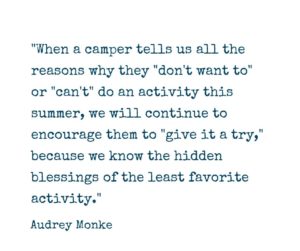 If a camper doesn’t want to do an activity because they don’t think they’ll like it based on their preferences or perception of themselves, trying something different offers an opportunity for expanded confidence. A camper who sees himself as non-athletic and more adept at target sports may shy away from the more physical activities, yet trying and accomplishing them could change his perception of himself in a positive way. A camper who likes shopping and clothes and sees herself as not an “outdoorsy” kind of person may dread going on a backpacking trip. Yet, the experience of cooking and sleeping outdoors could lead to an expanded view of herself and an appreciation for the many different facets of a personality. Sometimes, the activity a camper thought would be their least favorite becomes a favorite!
If a camper doesn’t want to do an activity because they don’t think they’ll like it based on their preferences or perception of themselves, trying something different offers an opportunity for expanded confidence. A camper who sees himself as non-athletic and more adept at target sports may shy away from the more physical activities, yet trying and accomplishing them could change his perception of himself in a positive way. A camper who likes shopping and clothes and sees herself as not an “outdoorsy” kind of person may dread going on a backpacking trip. Yet, the experience of cooking and sleeping outdoors could lead to an expanded view of herself and an appreciation for the many different facets of a personality. Sometimes, the activity a camper thought would be their least favorite becomes a favorite!
So, when a camper tells us all the reasons why they “don’t want to” or “can’t” do an activity this summer, we will continue to encourage them to “give it a try,” because we know the hidden blessings of the least favorite activity.
Article originally published at Sunshine Parenting.

Audrey “Sunshine” Monke, MA, has been the owner of Gold Arrow Camp since 1989 and currently serves as the Chief Visionary Officer. In addition to her vision-casting and mentoring at GAC, Sunshine is an author (Happy Campers: 9 Summer Camp Secrets for Raising Kids Who Become Thriving Adults), podcast host, speaker and coach on the topics of parenting, social skills, and happiness. Find out more at her website, Sunshine Parenting.
There are so many reasons great parents choose to send their kids to summer camp. Several years ago, I shared five of them on the most popular post I’ve ever published. But now I have more to share. Consider this the second installment in a series with others to follow, because the list of ways kids benefit from summer camp is seemingly endless.
Since I last wrote about reasons great parents send their kids to camp, I conducted research and found that camp experiences positively impact campers’ happiness and social skills. I’ll begin, then, with happiness.
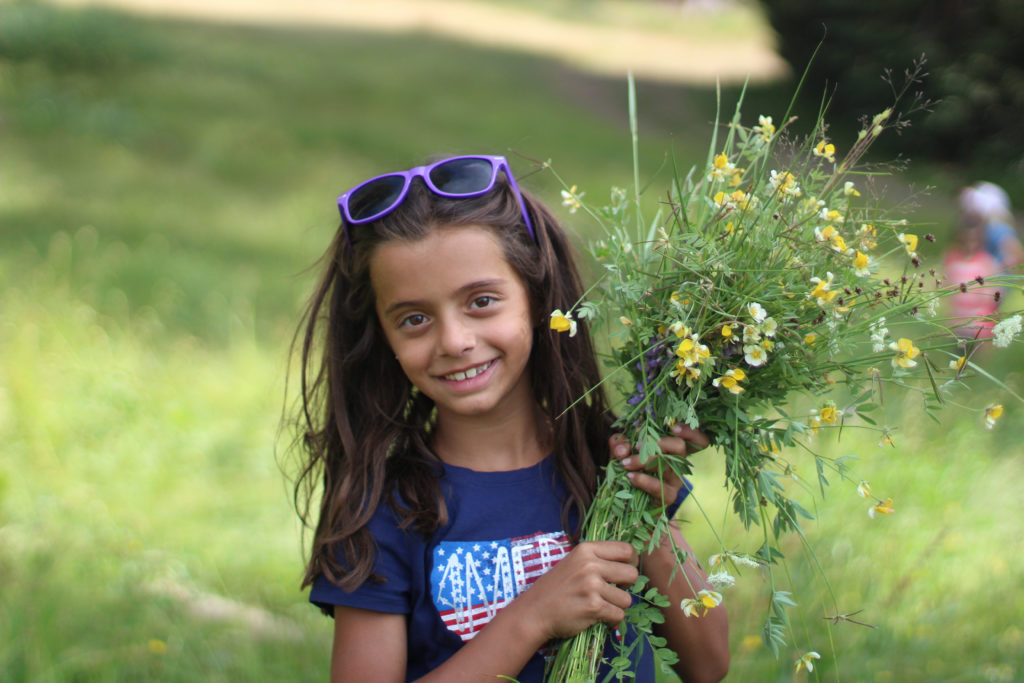
“Camp makes me happy and nothing can prepare me for life as well as this environment.”
“Come on,” you’re thinking, “How can two weeks in the mountains change my child’s overall happiness level?” Good question. One of my research findings was that both parents and kids agree that children feel happier after being at camp. The combination of positive emotions, deep friendships, being disconnected from technology, and just plain fun makes kids feel happier at and after camp I’ve previously written about how the science of positive psychology may explain why kids flourish at camp and demonstrate increased happiness levels before and after their camp experience. In this era, when we’re seeing our kids suffer from rising rates of depression and anxiety, isn’t it nice to know that there’s a place where kids can go that actually serves as a positive intervention for overall happiness?
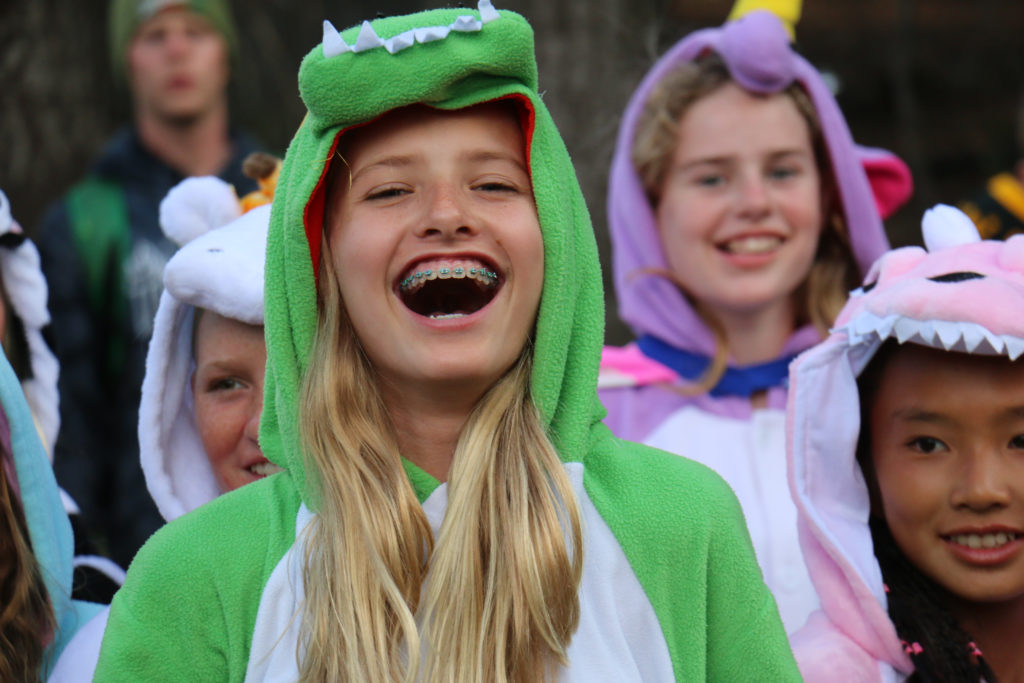
“Being at camp gives me this sense of belonging that I’ve never felt anywhere else.”
In many different ways, but all with the same underlying meaning, campers describe camp as a place where they can be themselves. They feel open to saying and being who they really are, not stuck conforming to what’s considered “cool” and “acceptable” in the outside world. Surrounded by a diverse group of friends of different ages and backgrounds, kids develop the ability to explore their own interests and express their own thoughts better. As a parent, I hate to admit that I sometimes push my own interests on my kids, even when I don’t mean to. For example, I might say, “You’re so good at softball! Don’t you want to keep playing?” when my child says she doesn’t want to play anymore. Stepping away from their regular activities and normal life schedules (as well as their well-meaning but often overly directive parents), kids have the opportunity to think through what’s really important to them as individuals.
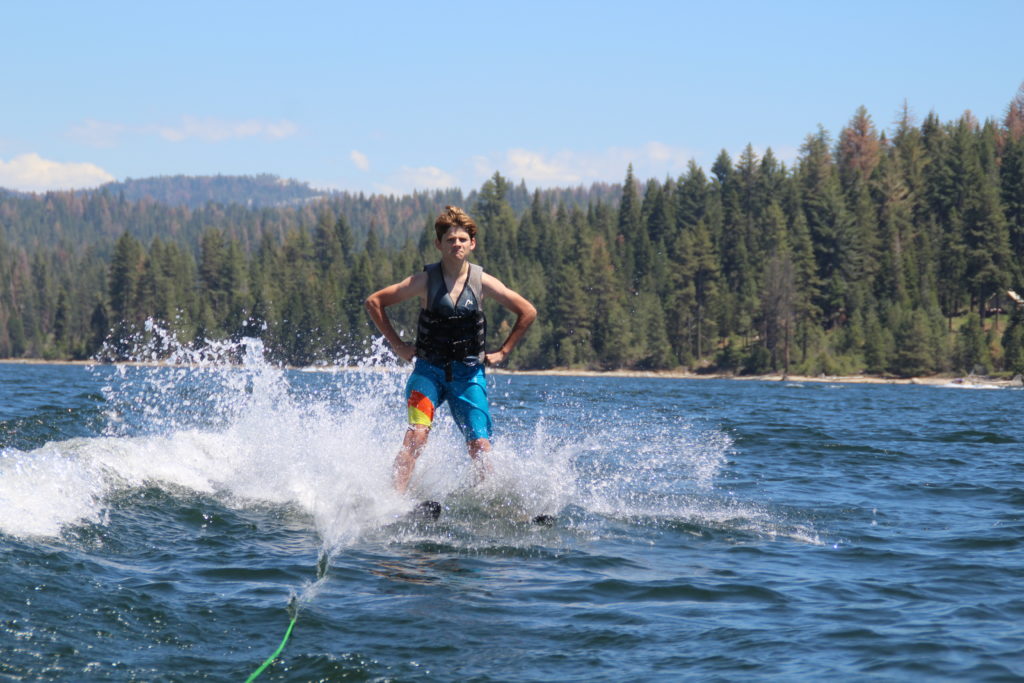
“The counselors challenged me to do things I wouldn’t normally do at home.”
Learning self-reliance, experiencing mistakes and failures, and reaching for goals are all camp experiences that help campers develop their grit, an important character trait that we’ve learned is critical to success in life. Camp offers a unique experience to children – the chance to be away from their parents for a short period of time and learn to handle more things on their own. Without parents to step in and assist, or rescue from mistakes, kids develop confidence in their own ability to make decisions and solve problems. Just being “on their own” is a huge confidence builder for kids, and they feel more self-reliant after being responsible for themselves and their belongings for a few weeks.
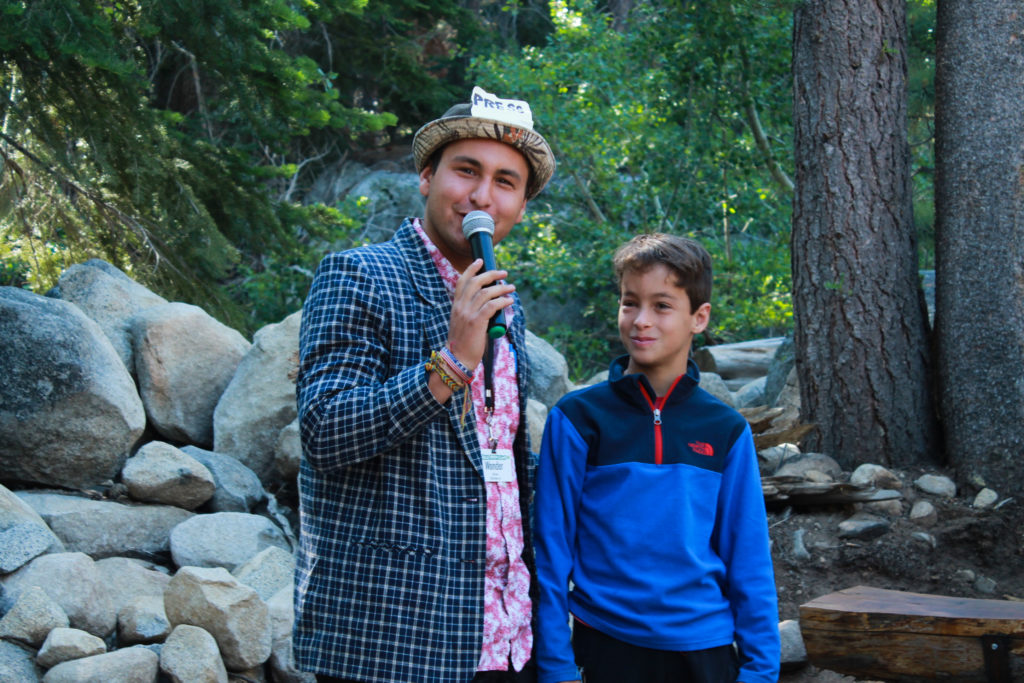
“Camp has made me into a leader, having the best role models as my counselors to look up to.”
One of the best things that happens at camp is that kids get exposed to a different kind of adult role model than what they see in the media. No reality TV stars will be gracing the waterfront or backpacking trips at summer camp. No perfectly coiffed and stick-thin model will be standing next to them brushing teeth in the bathroom. No macho guy who speaks disrespectfully about women will be leading the campfire discussion. In fact, the college students who choose to spend their summer working at camp are an outstanding bunch of young adults. Most are stellar students with outstanding leadership skills. They love the outdoors and working with kids, and they are the kind of people we want our kids to emulate. They love leading discussions on topics that are important to their campers and helping them build confidence. There’s no focus on appearance at summer camp, and so designer clothes, make up, and trendy hair-styles don’t hold the same importance that they do at junior high or high school. In fact, the predominant style at camp is pajama pants paired with dirt and sweat-stained t-shirts. And we hardly ever spend time in front of a mirror.
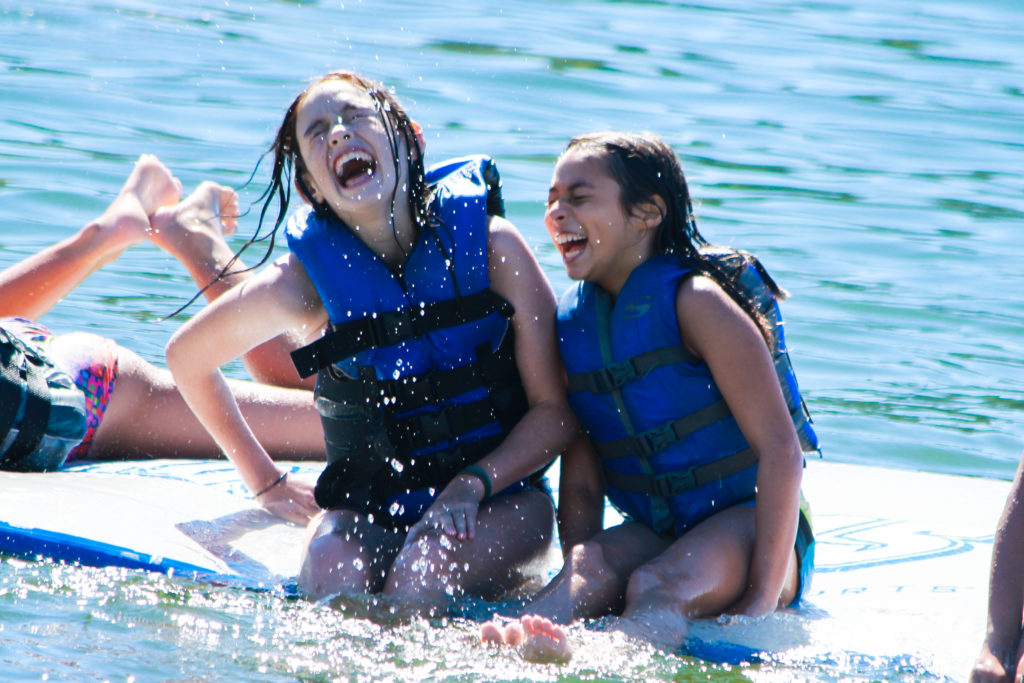
“The other part of camp that has influenced me the most is the simple idea of trying to always smile.”
In post-camp surveys, campers consistently write about how ditching their electronics was one of the best things about their camp experience. In fact, it’s a practice they take home with them, setting aside phones during meals with friends so they can connect more genuinely, face-to-face. In the absence of technological tethers, campers have many hours each day to practice these face-to-face communication skills. They learn the importance of things like eye contact, smiles, and body language as they positively interact with their peers. Counselors help facilitate lively discussions, and campers learn to ask each other questions, listen more carefully, and figure out common interests. Kids learn and practice valuable communication skills at camp, which they can use throughout their lives.
There you have it! Five (more) reasons that great parents send their kids to camp!
This post was originally published on Sunshine’s blog, Sunshine Parenting. For more camp-related posts, visit the “Summer Camp” page at her blog.